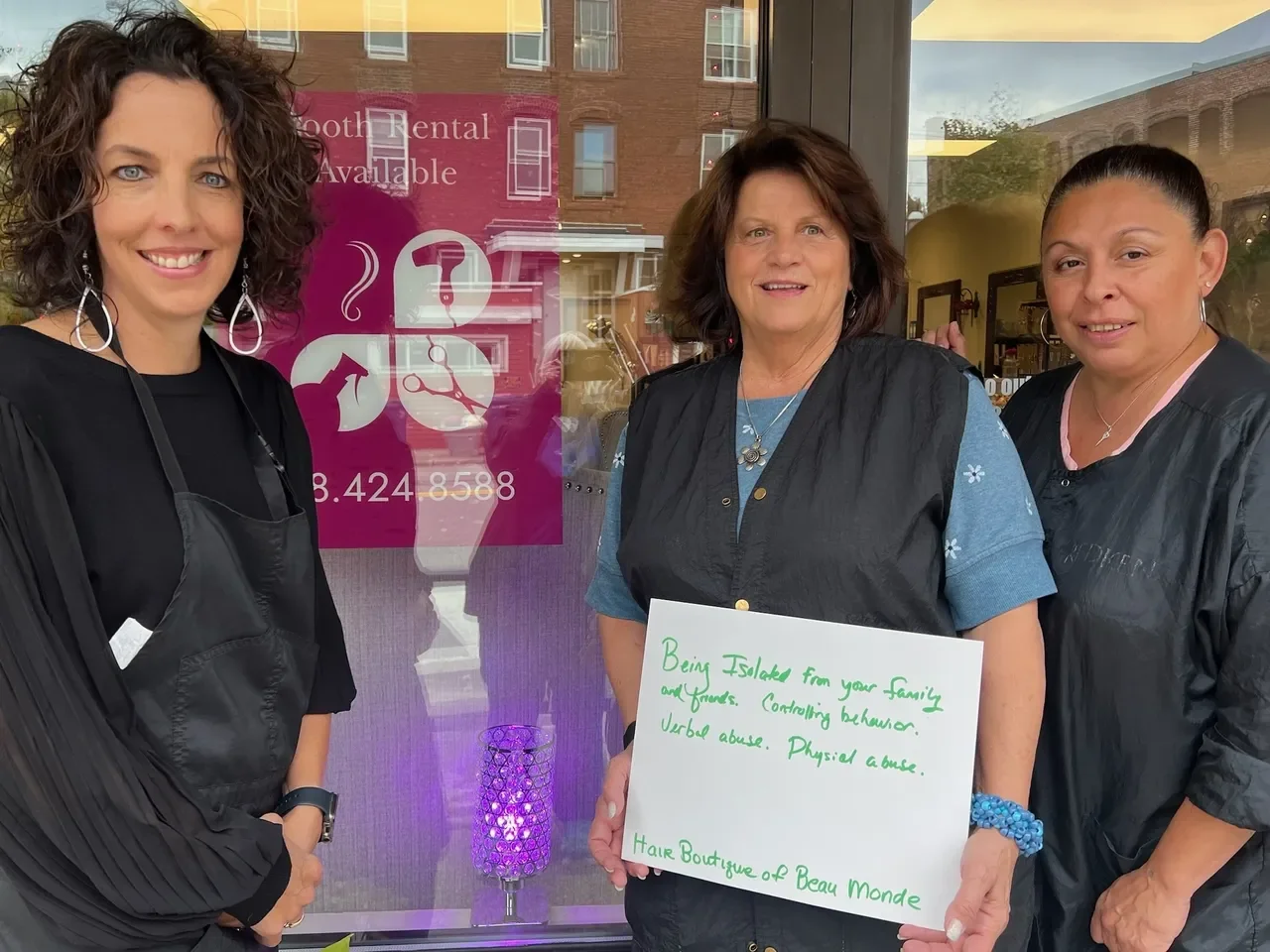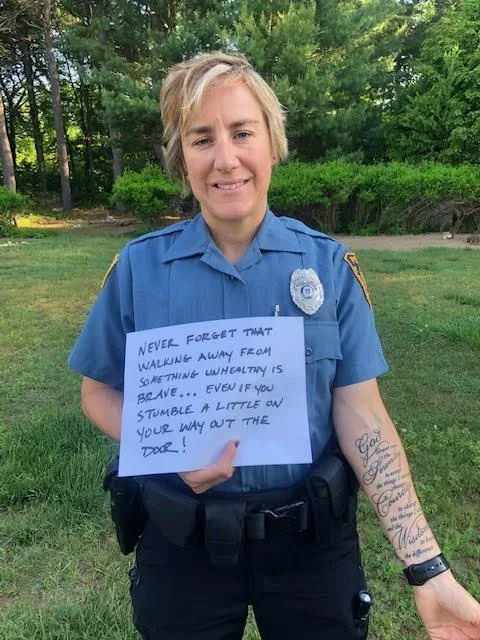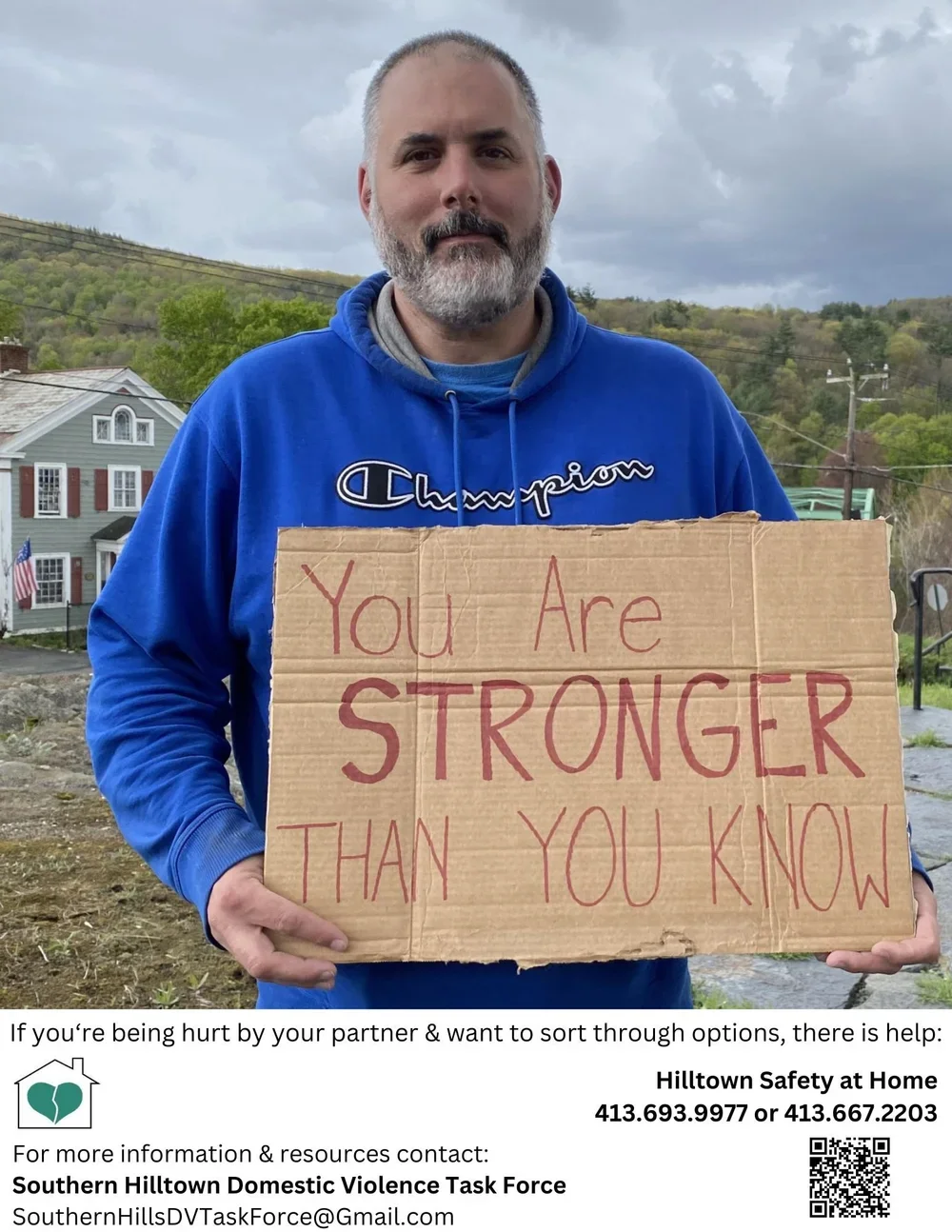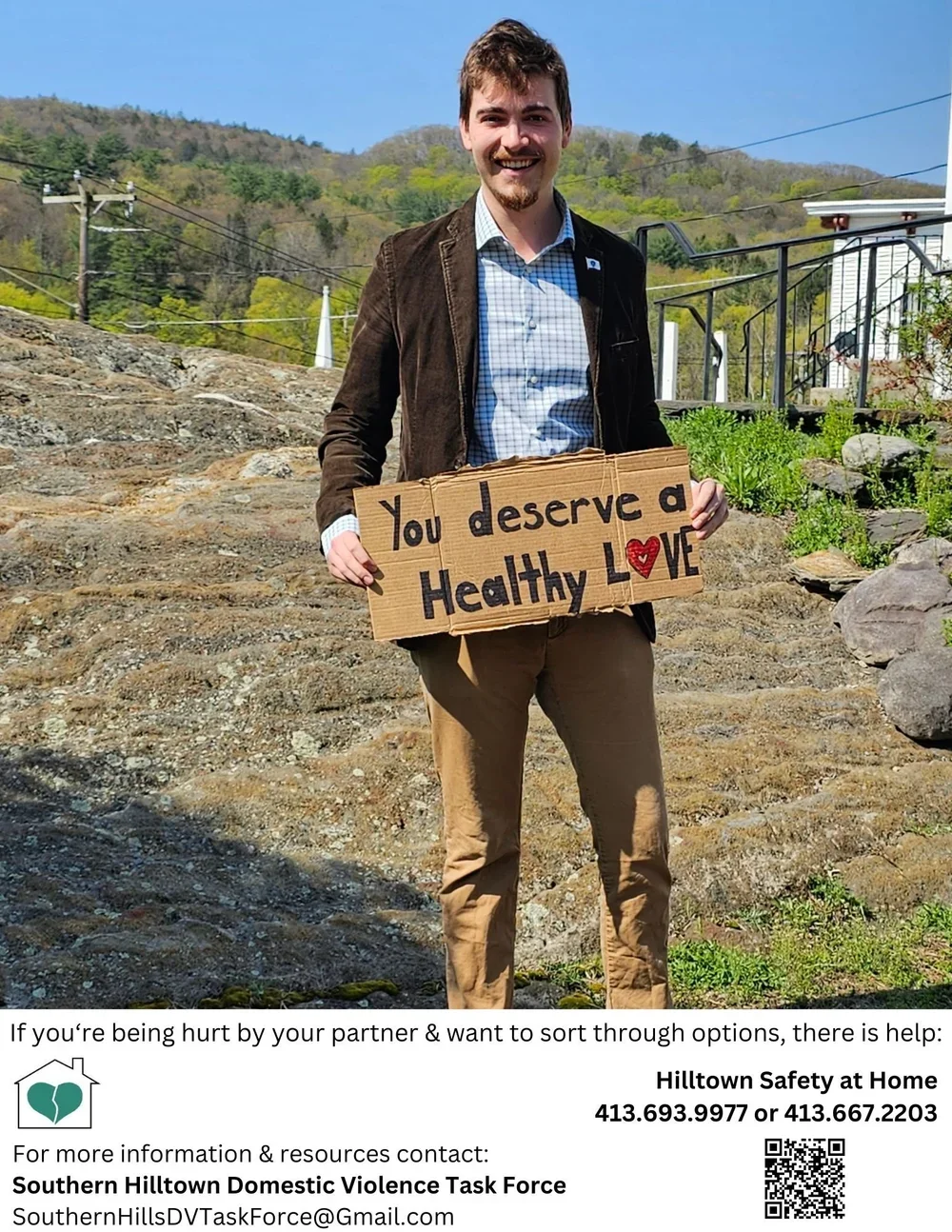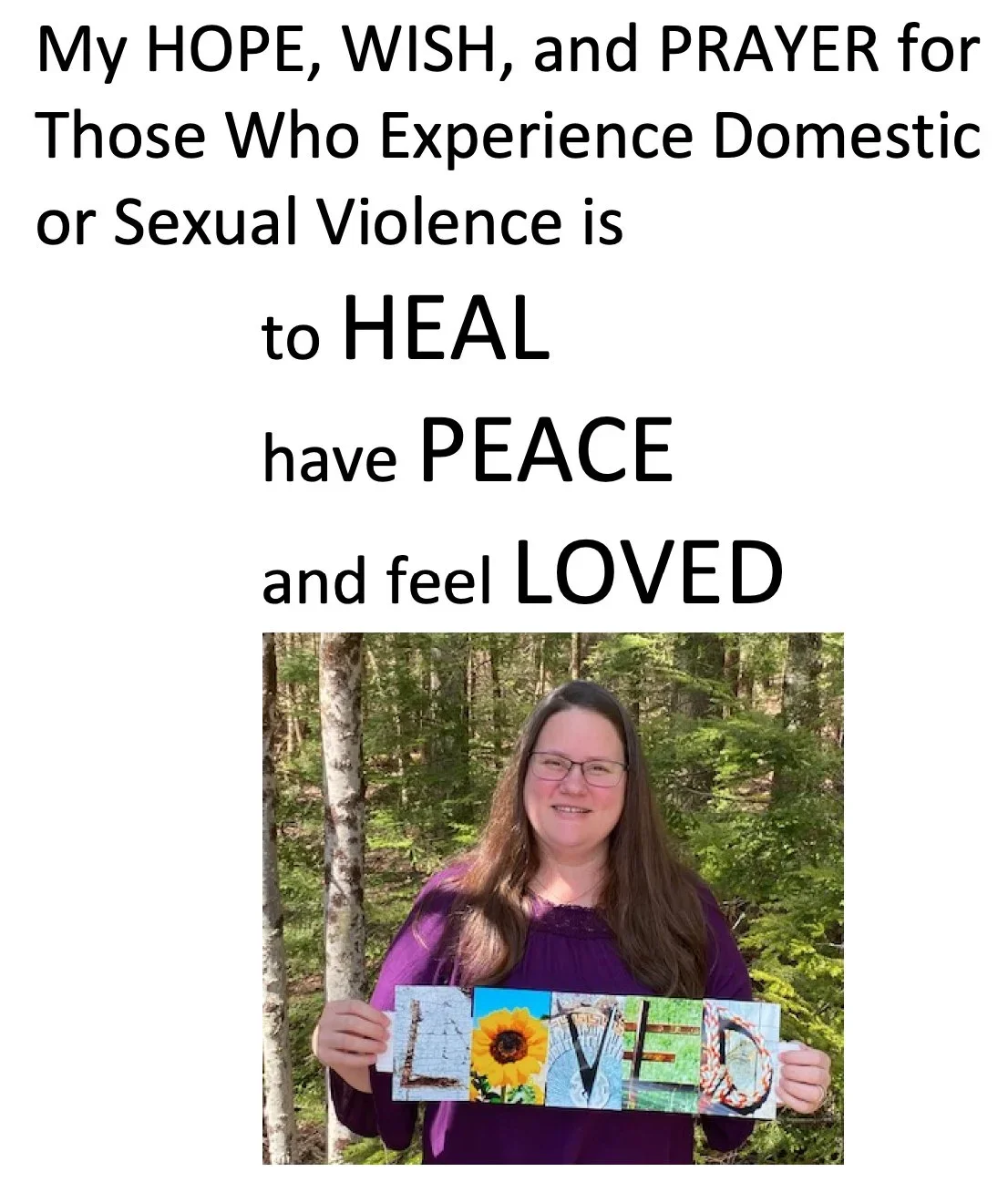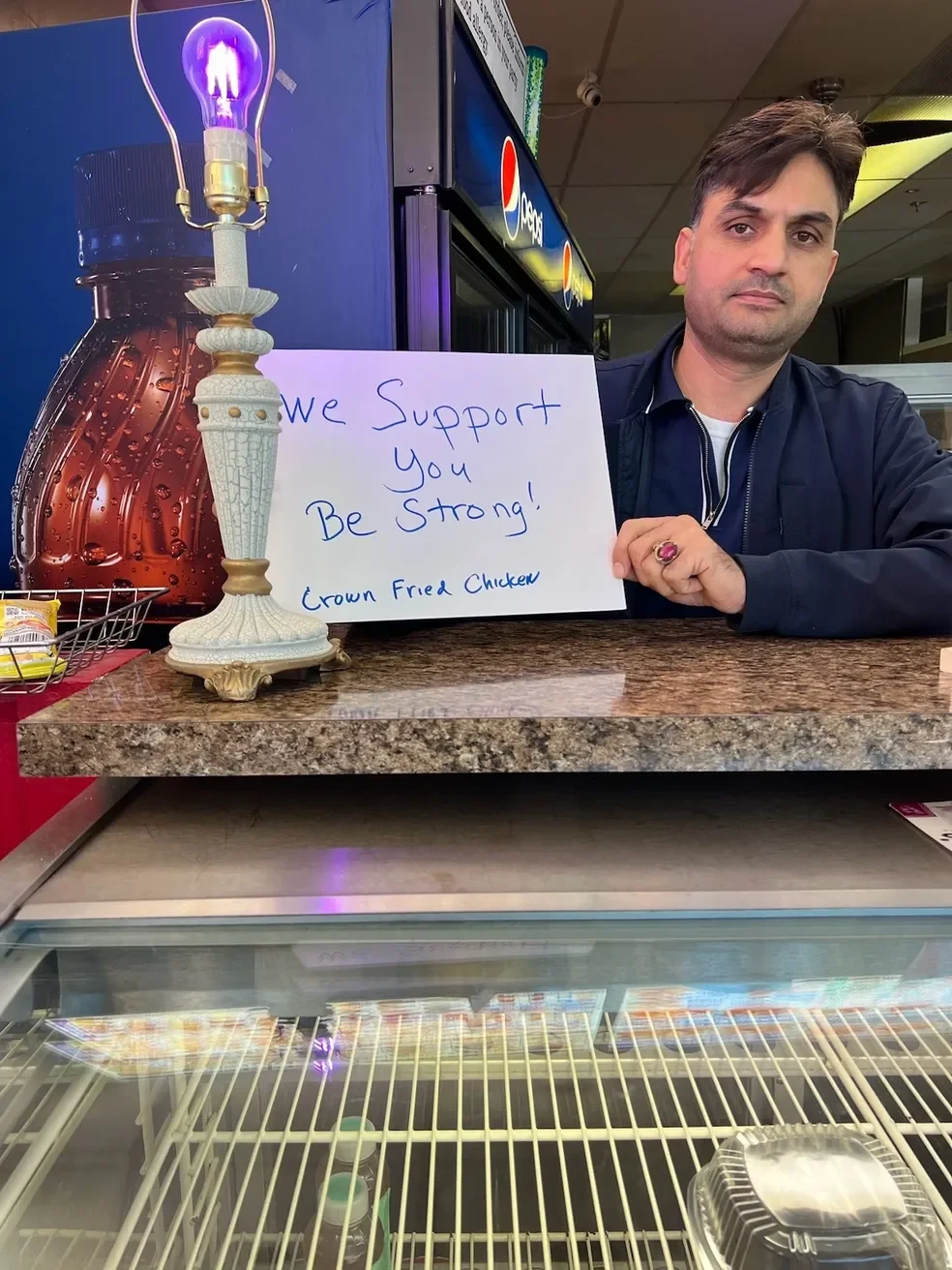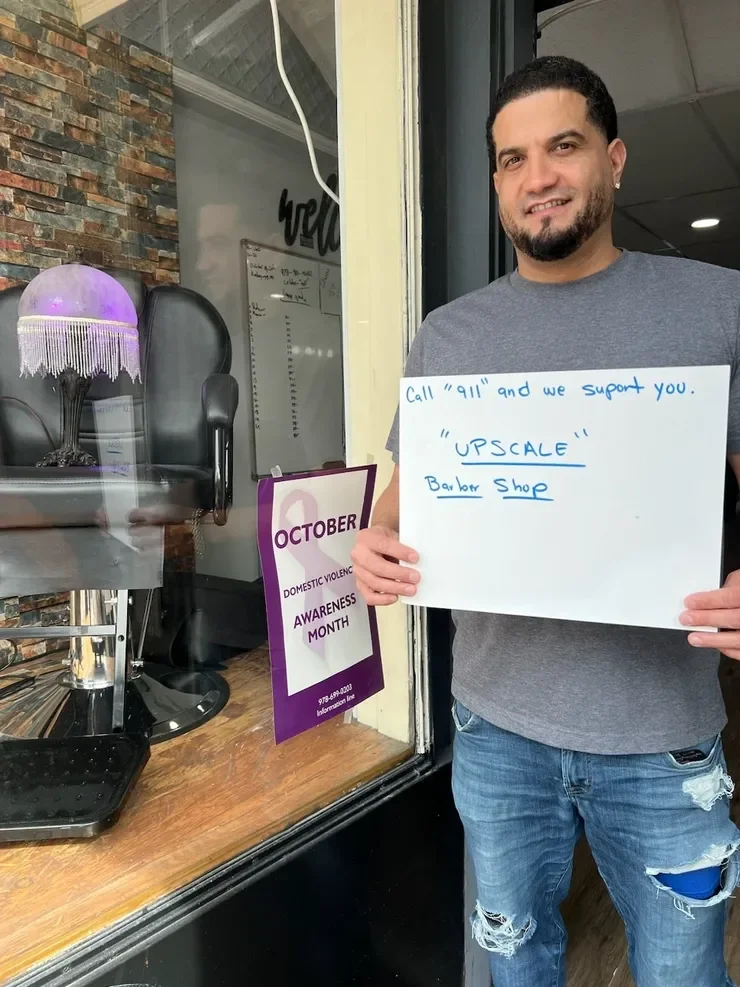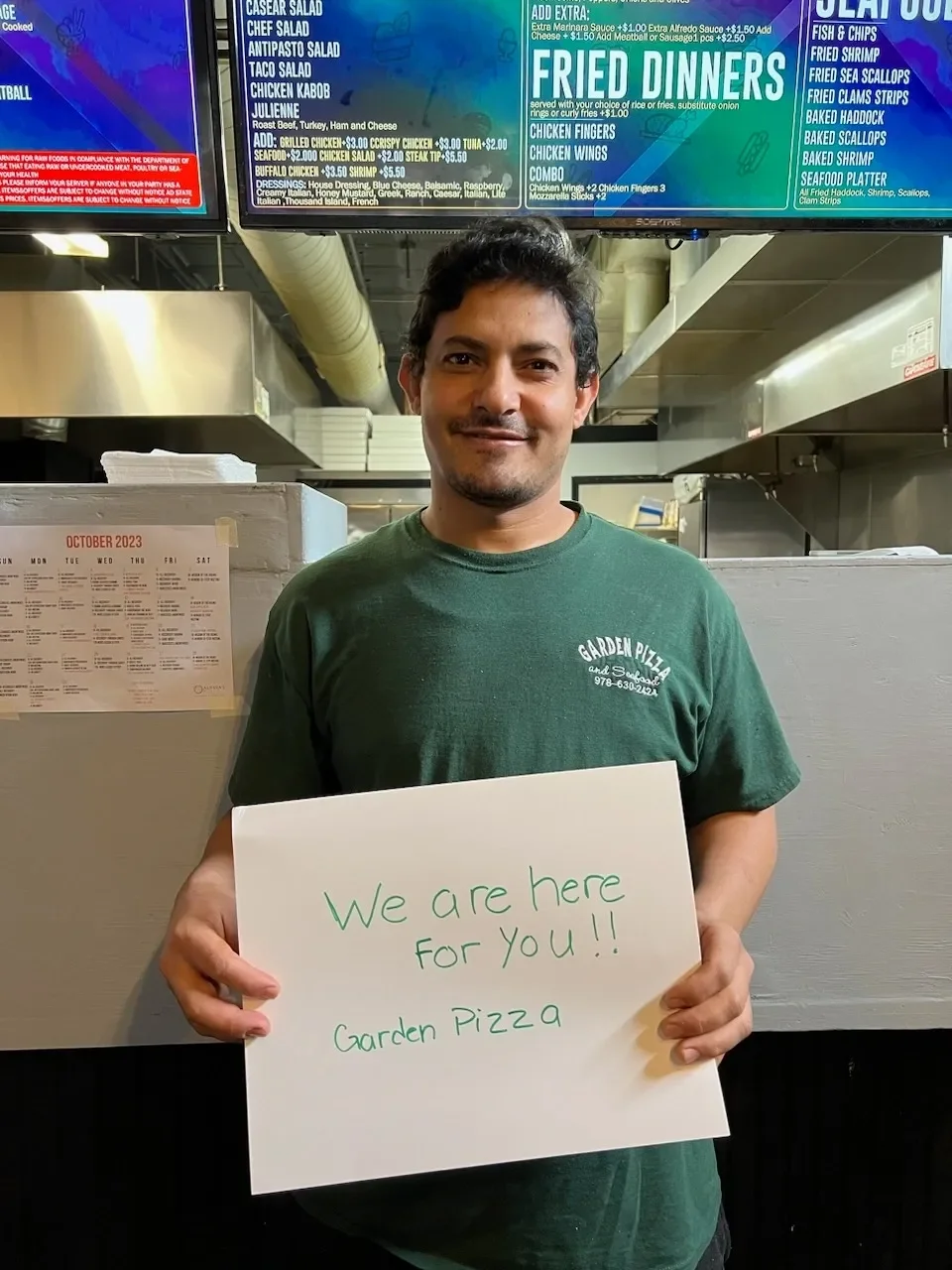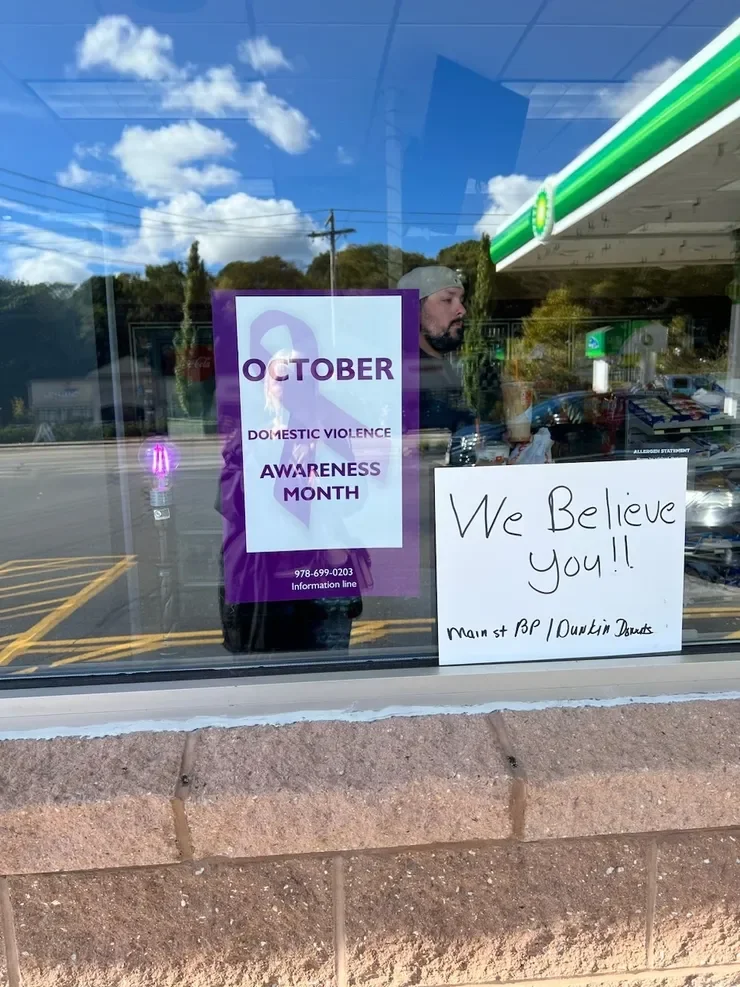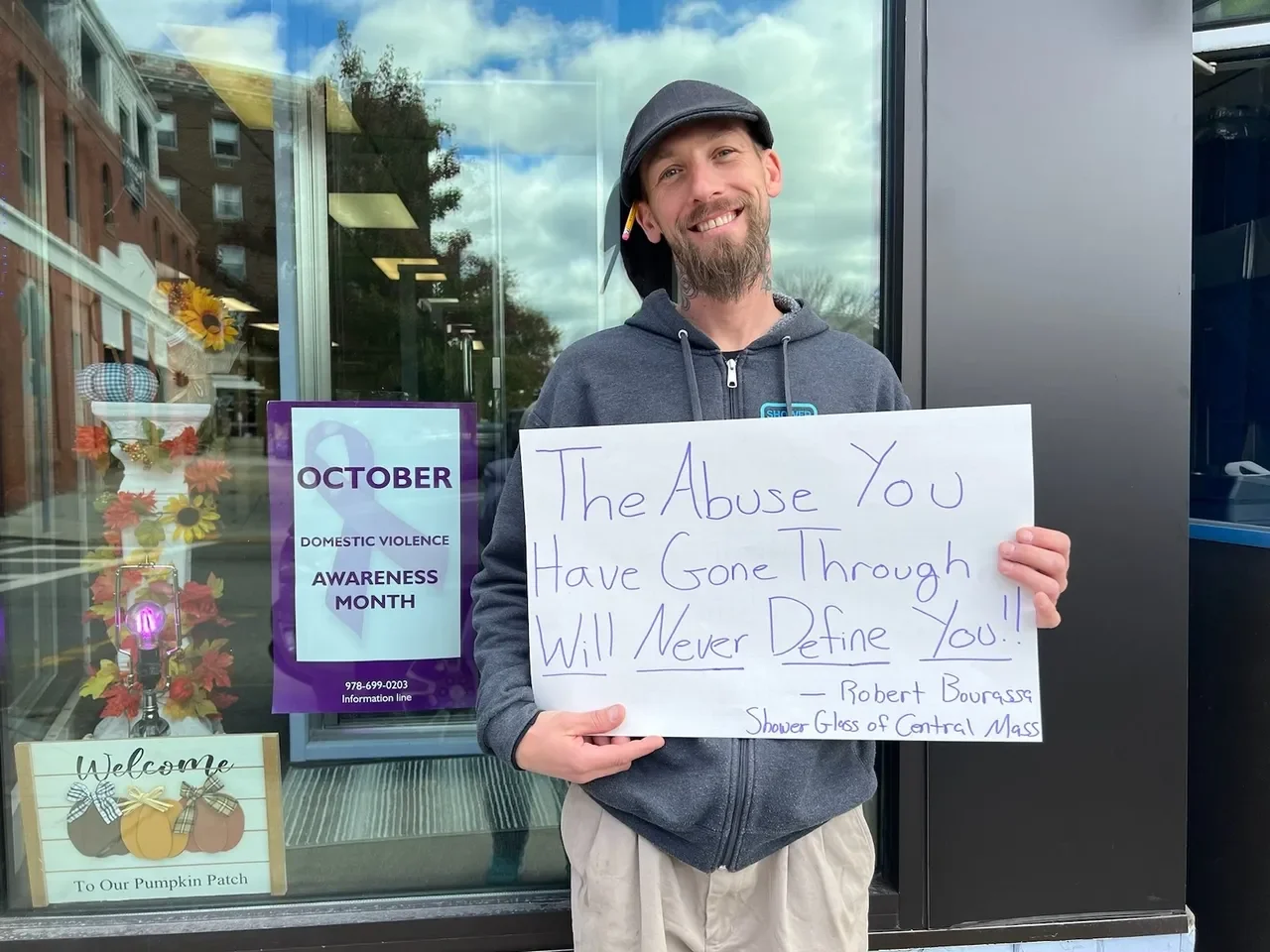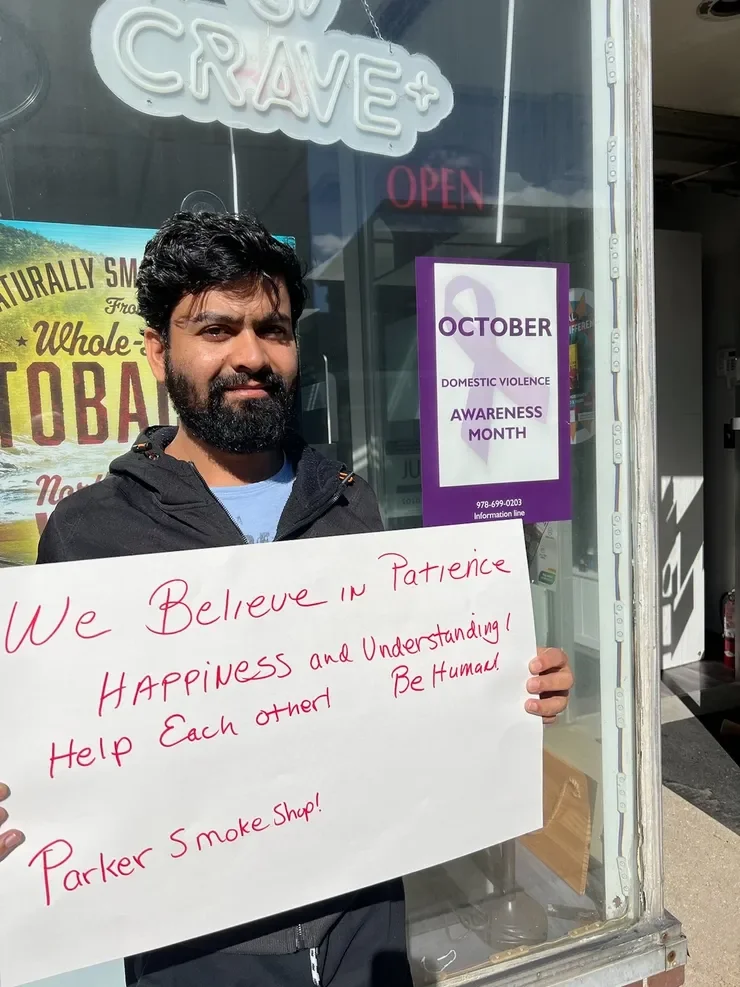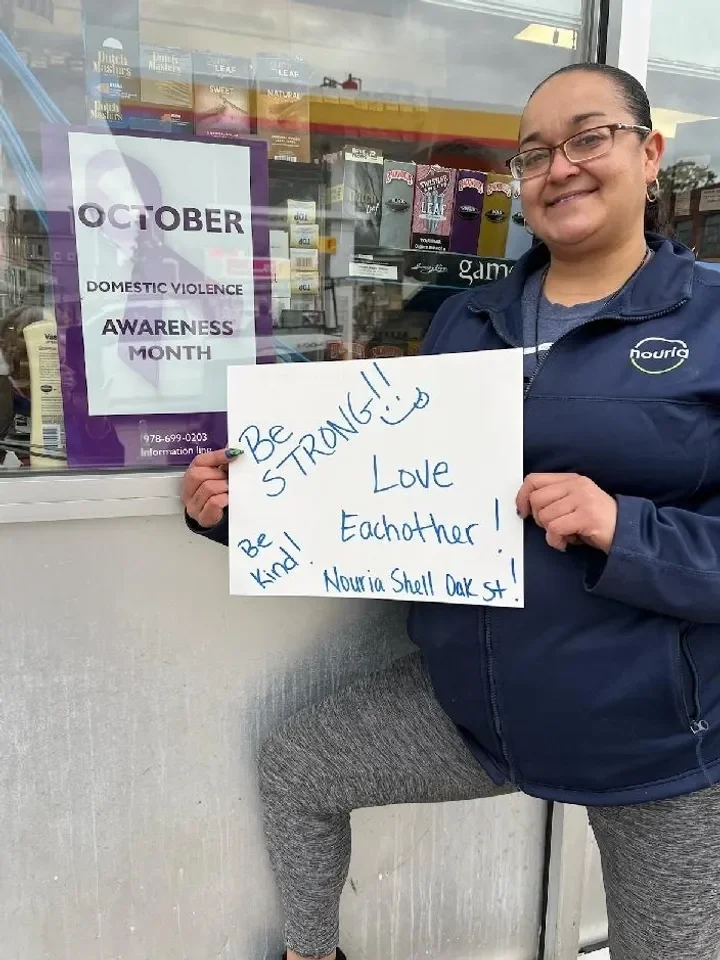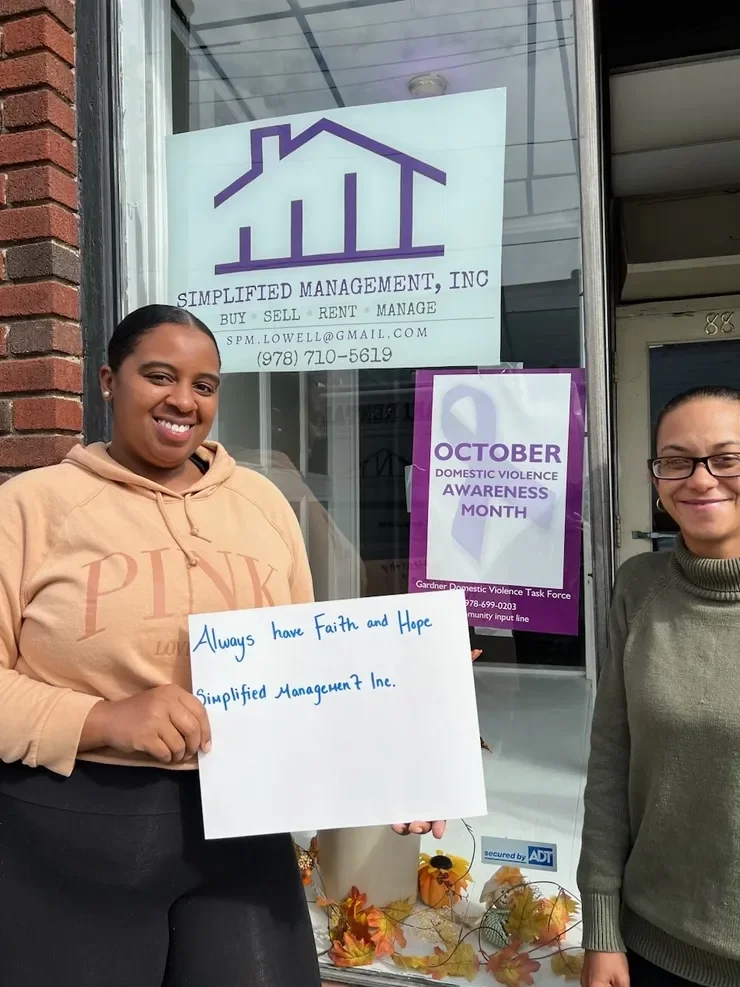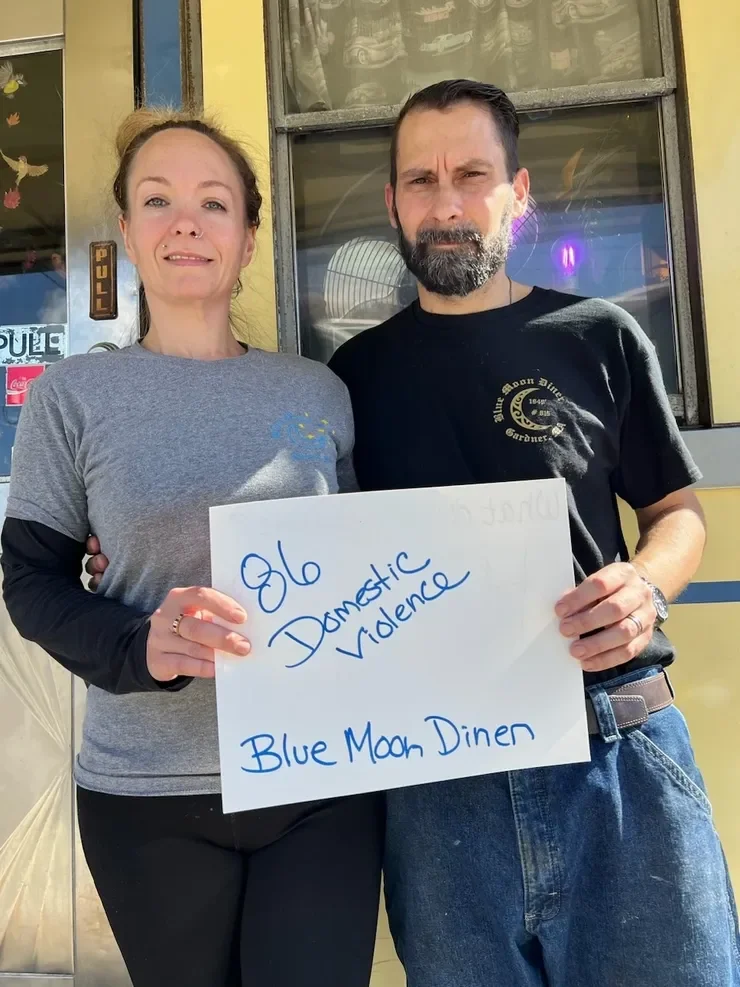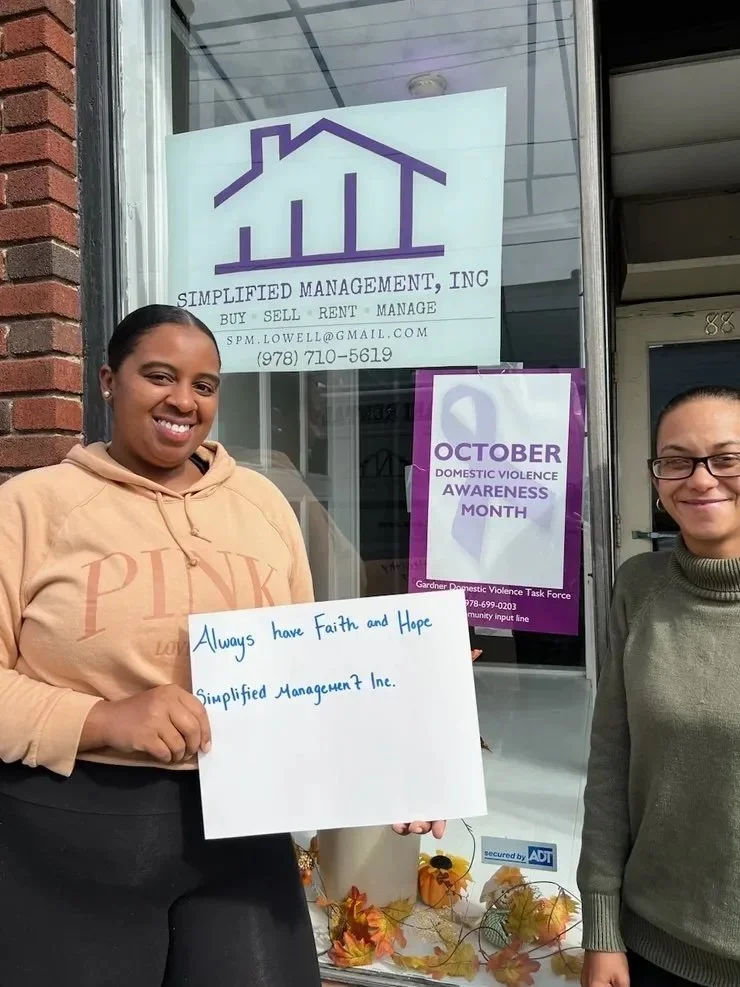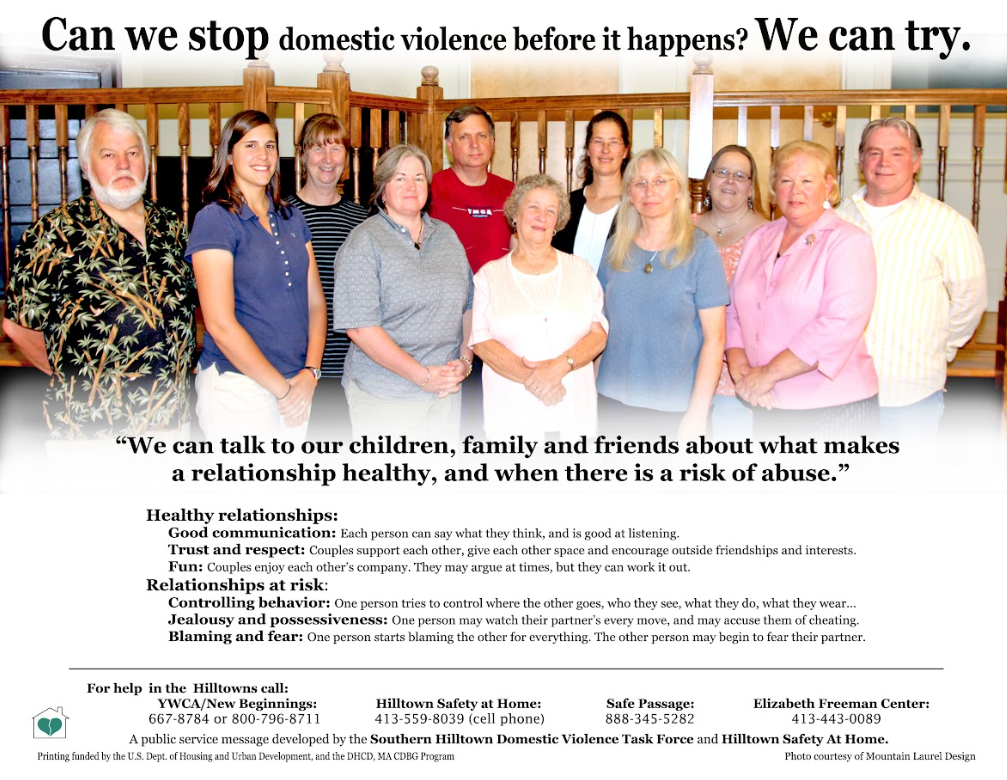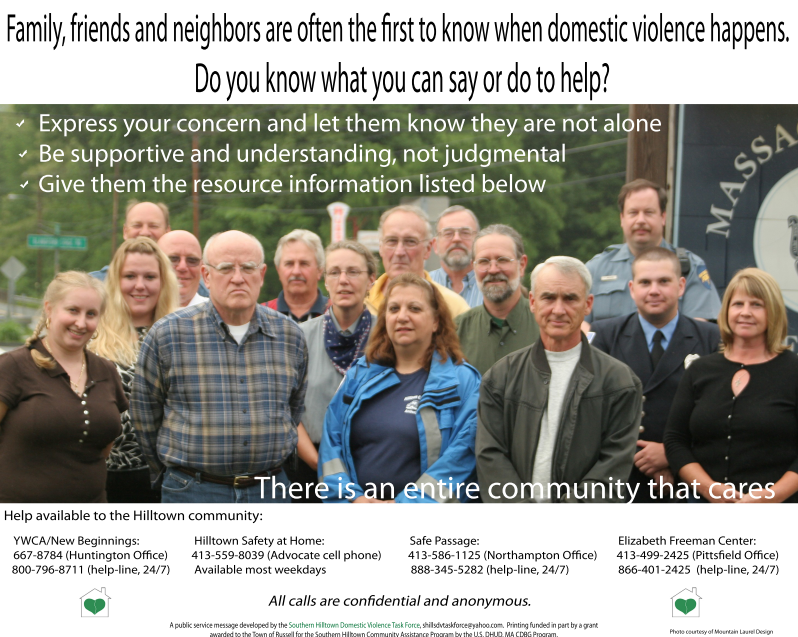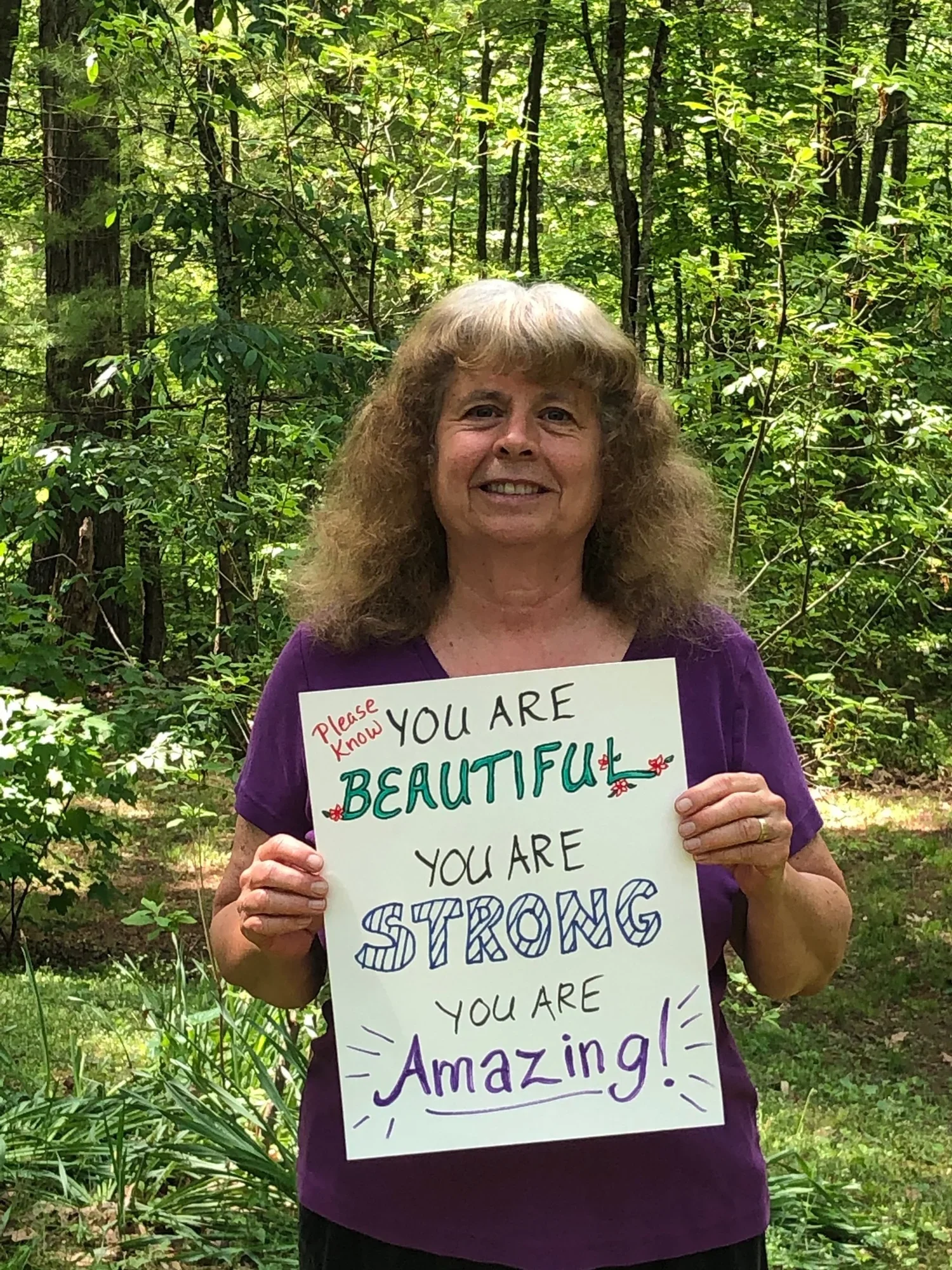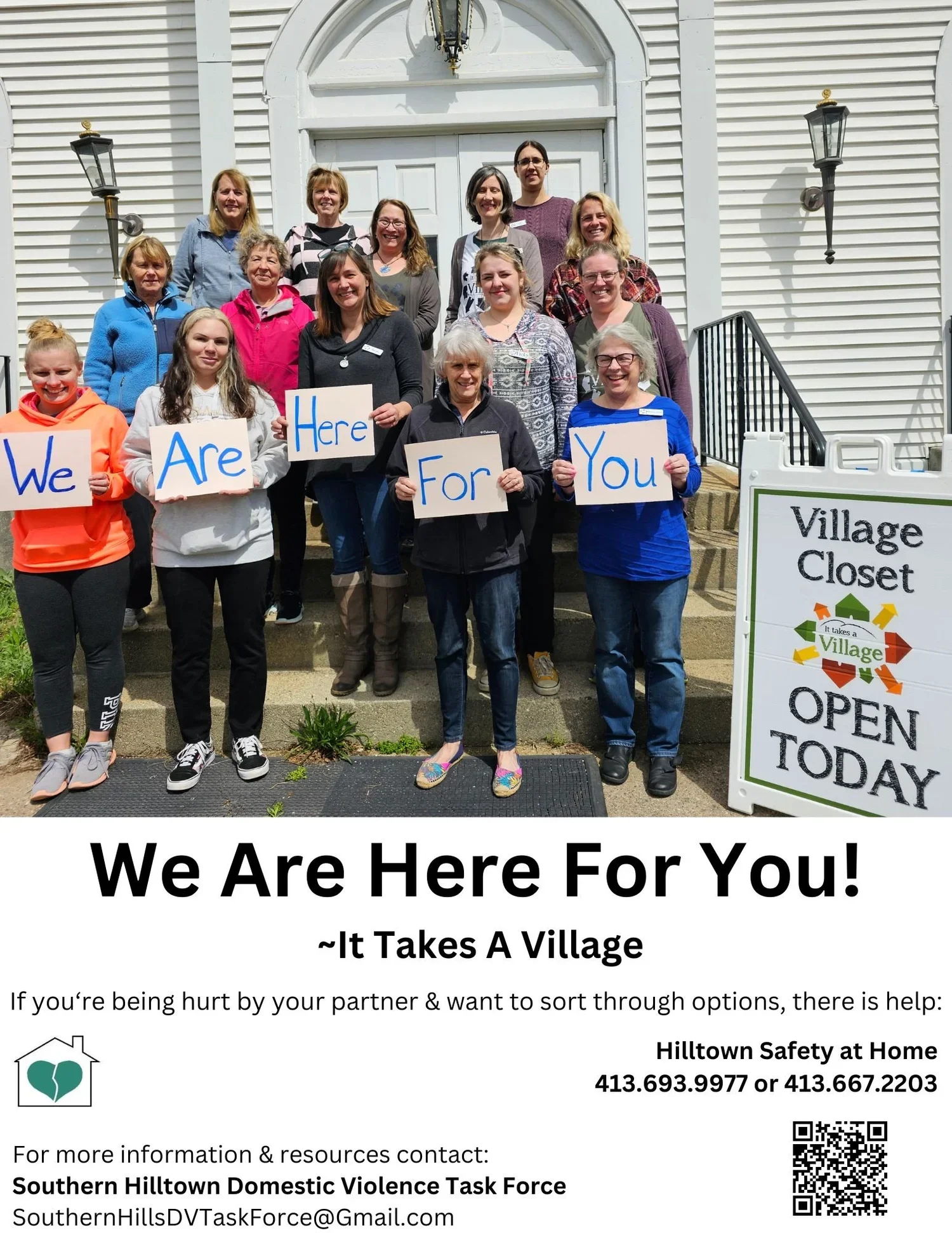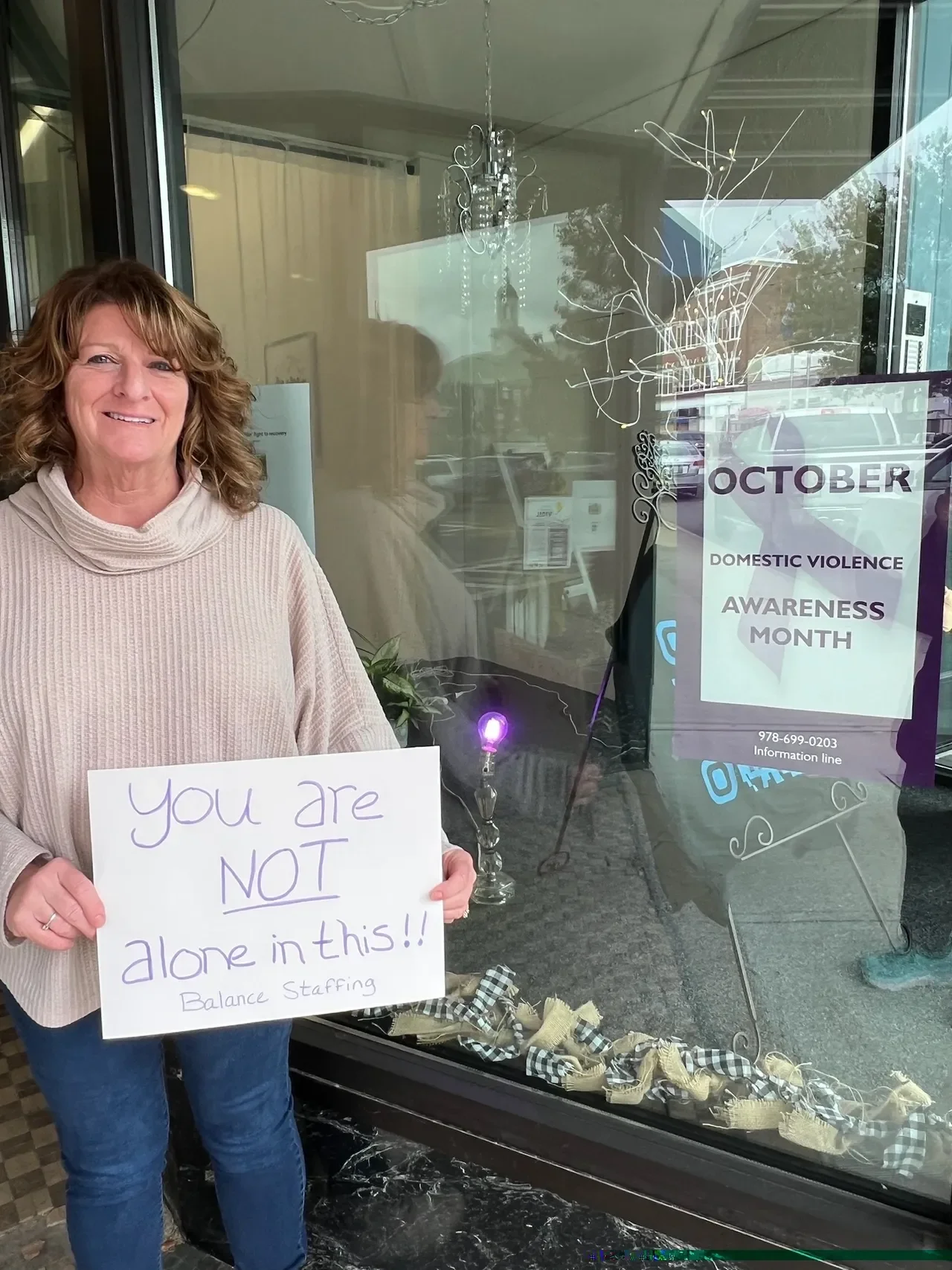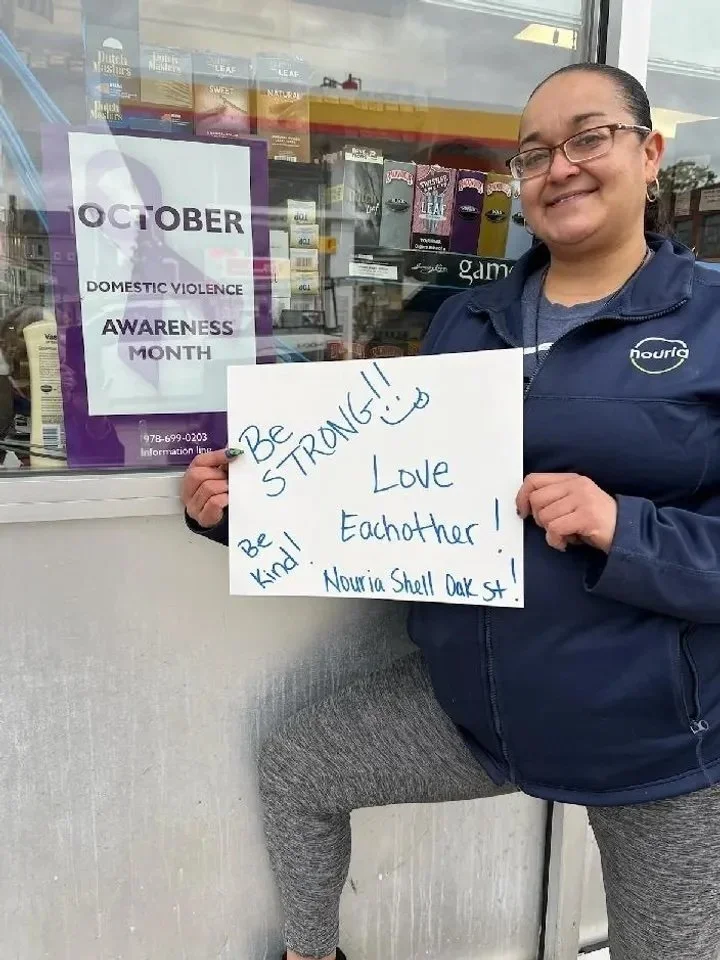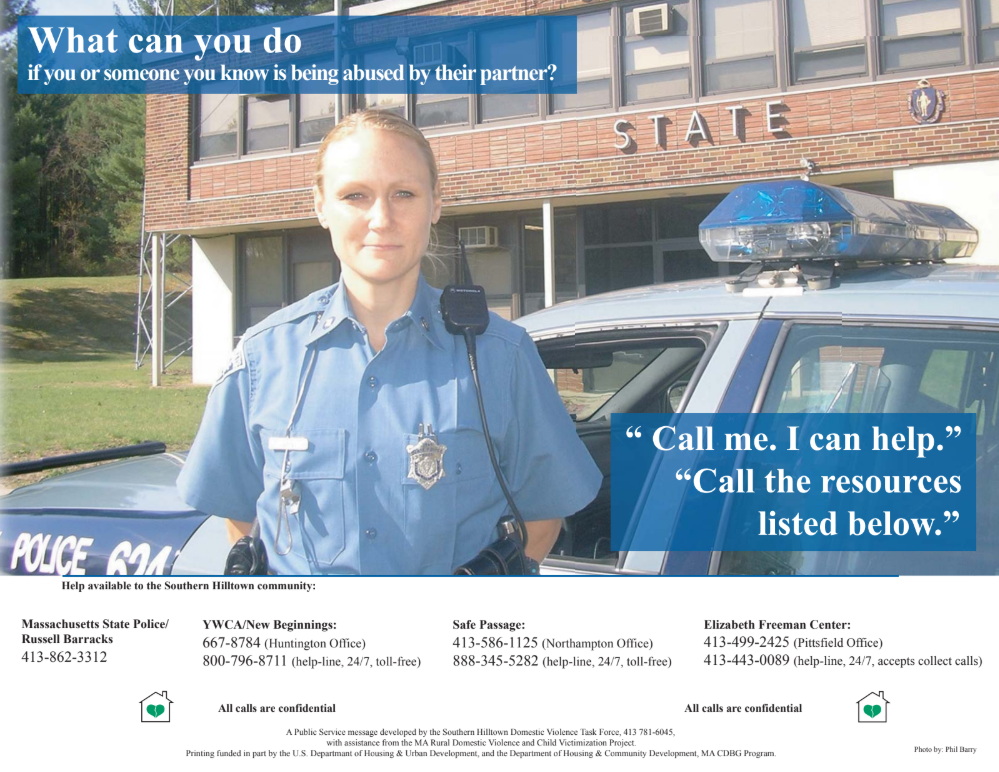More Letters to the Editor/Letters to Parents/Opinion Pieces
-
September 1, 2016
To the editor,
The Southern Hilltown Domestic Violence Task Force will start meeting again on September 8th after a summer break. We’d like to invite you to join us. The Task Force is open to anyone who lives or works in any of the southern hilltowns – from Worthington down south to Tolland and Granville. Our goal is to end domestic violence in our community through prevention, outreach and education, training, establishing and supporting local services, and whatever else we can think of to do.
We meet the second Thursday of each month in Russell from 4-5:30pm. If the time doesn’t work for you, there are many ways you can still partner with us as a Task Force ally. Or, if you have a relevant story or a perspective you’d like to share, you can come to just one meeting and we’ll gladly hear what you have to share. We appreciate community input and want all our initiatives to be informed by community need.
There are usually about seven to twelve of us at any given meeting. We have a Task Force Coordinator to help us stay organized, but no special positions or titles beyond that. We are a combination of local agency representatives and community residents. We’d love to have more community residents join us, and we definitely invite people who have direct experience with domestic violence in their lives to come to the table. Your input is invaluable.
To find out where we meet or for more information, please email us at southernhillsdvtaskforce@gmail.com
Thank you,
Phil Barry
Kim Savery
Diane Meehan
Gail Bobin
John Bergeron
Lindsey Maxwell
Wendy Long
Nancy Webb
Sheela Haque
Monica Moran
Dan Kennedy
Bev HenrichsenMembers, Southern Hilltown DV Task Force
-
Letter to editor:
Earlier this month, Jeb Daly pleaded guilty to the second-degree murder of Jessica Dana, his partner and the mother of his children. The murder was horrific. It was, and still is a nightmare for the family. Domestic violence perpetrators are not often held accountable for the devastation they cause, but in this case our justice system worked like it should.
We want to thank everyone who was involved. The Northwestern District Attorney Dave E. Sullivan and his staff did a great job. Jackie Gaw, the Director of Victim/Witness Assistance, supported and guided the family with steadfast care throughout this two year ordeal, and Chief Trial Counsel Jeremy Bucci held out for second-degree murder rather than the lesser and easier charge of manslaughter. The investigative and forensic work which made the second-degree murder charge possible, was done with professionalism and skill by the State Police Detective Unit headed by Robin Whitney. We also want to thank the many family and community members who have helped and comforted Jessica’s family throughout this tragedy including Kim Savery of the Family Center, Joyce Hanousek of Gateway Schools, Hilltown Safety at Home, and all the staff of Hilltown Social Services.
During the hearing, Superior Court Judge Josephson listened attentively and respectfully, and encouraged Cheryl Stoothoff, Jessica’s mother, to take all the time she needed to read the victim impact statements written by Jessica’s family members. Cheryl also deserves praise for her extraordinary strength. She spoke from the heart and clearly conveyed how Jessica’s murder has devastated her family, specifically her young grandchildren. Judge Josephson commented during the hearing that in all her years of listening to victim’s statements, she has never heard any presented with so little vengeance, and complimented Cheryl for focusing on the healing and well-being of the children, rather than retribution.
Now it is our turn as a community to step up. We need to do and say whatever we can in our everyday lives to prevent domestic violence. This means talking to the teens in our lives – whether we are parents, teachers, coaches or friends - about healthy relationships and the signs of partner abuse. It means calling someone out when they make a comment that supports abusive values – values that demean women, support the right of one person to control another, or imply that anyone could ever deserve to be abused. We also need to reach out to those who are already in abusive relationships to ask if they are okay, and to listen without judging. Then we can refer them to our knowledgeable local domestic violence agencies including Hilltown Safety at Home (413-685-3911), Safe Passage (888-345-5282), Center for Women and Community (888-337-0800), YWCA/New Beginnings (800-796-8711), GLBTQ DV Project (800-832-1901,) and for those who abuse, Moving Forward (888-636-9050).
Our public servants and community members did a great job. Now let’s all work on preventing future tragedies by talking and reaching out at every opportunity.
Sincerely,
Gail Bobin
For the Southern Hilltown Domestic Violence Task Force
-
To the editor,
May 18, 2020The Ware River Valley Domestic Violence Task Force read with interest your recent article about the arrest of Warren Police Officer Shawn Morin for allegedly handcuffing his girlfriend, taking her phone, bruising her arm, and forcing her into the back seat of his cruiser while he was on duty.
We were heartened to see that state guidelines for when a police officer is accused of domestic violence were followed, and that Warren Police Chief Gerald Millette went to the scene to ask that Morin’s police identification, license to carry firearms and duty gun be confiscated. Research shows that when there is domestic violence in the home, guns dramatically increase the risk of fatalities.
Morin is now on administrative leave, and we don’t know what will ultimately happen in court. Still, how the unfolding situation is handled by the Warren Police Department will speak volumes. What will happen if Morin is found guilty, not guilty, or if charges are dropped? What damage to the public trust has his unacceptable on duty behavior done, regardless of the legal outcome?
The answers to these questions are critical. Victims and survivors must feel confident in their police department. Calling the police because you are scared of someone you love or may have once loved is overwhelming in the best of circumstances. By making that call, you may be giving up a cherished dream you had of a happy life with someone you loved. You may be risking poverty, isolation, parenting rights, and retribution for telling your story publicly. You are asking for help from someone you don’t know, who may or may not understand, who may or may not blame you for what is happening, especially if you are not the perfect victim.We know that if someone’s first call for help goes well, they are likely to ask for help again. If they feel disrespected, disregarded or blamed, they may decide they have to handle the situation on their own. Yet we know most people who get out of abusive relationships successfully do it with help from professionals or loved ones, not all by themselves.
We applaud Chief Millette’s handling of this difficult situation thus far. The Warren Police Department collaborates with local domestic violence advocates out of Behavioral Health Network who follow-up on domestic violence police calls, which speaks highly of their ongoing commitment to serve.
We remain hopeful. In the meantime, if you or someone you know needs help you can reach a BHN advocate directly at 413-262-7103 or 413-967-6241 x58535. And if you are at risk of being violent and want help changing your behavior you can get help from Proteus at 413-967-6241 x58531.
Sincerely,Rebekah DeCourcey
Paul Regan
JAC Patrissi
Monica MoranWare River Valley Domestic Violence Task Force
-
To the Editor: October 15, 2012
October is domestic violence awareness month. We feel grateful to live in the Hilltowns where people take domestic violence seriously. We witnessed this in July when approximately 150 people attended a Remembrance in memory of Jessica Dana held at Knightville Dam in Huntington. Jessica was allegedly murdered by her partner Jeb Daly in late June. We want to thank everyone who came to this important event.
We hope that our communities will continue to stand together against domestic violence, and will make an effort to help all those impacted by abuse. This help can be as basic as letting someone know you are worried about them, and then listening non-judgmentally to what they have to say. It can involve reassuring someone who is being hurt that they are not responsible for the abuser’s actions. It can involve helping someone who is in danger to develop a plan to stay safe – and respecting their choices whether or not they plan to leave. And, it can include connecting a person in need to local resources. Hilltown Safety at Home has a local domestic violence advocate (413-559-8039) who can meet in the home if it is safe and can provide transportation and court accompaniment. The Center for Women and Community (413-658-4756), and YWCA/New Beginnings (413-667-8784) also have advocates that serve the hilltowns. YWCA has a support group in Westfield with free childcare.
Thank you for understanding that domestic violence is a serious issue, and thank you for reaching out to anyone you know who might be in trouble. Your kind words could save someone’s life.
Sincerely,
Nancy Webb
Diane Meehan
Wendy Long
Delia Liquori
Gail Bobin
Monica Moran
Phil Barry
Lyndsey MaxwellMembers of the Southern Hilltown Domestic Violence Task Force
-
Country Journal,
October 24, 2014People blame Jamal Palmer Rice for staying with Ray. They wonder how someone as likable as Ray Rice from the Baltimore Ravens could punch his fiancé in the face. They are astonished that Jared Remy, son of celebrated Red Sox infielder and now broadcaster Jerry Remy, could physically assault five girlfriends over 17 years with so little consequence from our legal system, until he finally killed Jennifer Martel. Normally, we use October - domestic violence awareness month – just to get this issue in the press. This year, we want more. We want people to understand domestic violence.
Domestic violence is complicated. It is not a one-time incident. It is a process, carefully designed to establish control over a partner. It often unfolds over years during which children are born, houses are bought, lives are built, and promises to change are repeatedly offered - often followed by periods of peace. Let’s take a look at some of the reasons Jamal and others might stay, or at least not leave quickly.
1. Fear. People who abuse almost always threaten their partners. If they leave they will be killed, they will never see their kids again, their partner will commit suicide. Some victims try to protect themselves by calling the police or getting a restraining order, and these strategies often succeed. But police response is variable, and victims sometimes get arrested alongside of, or instead of their abuser. Jamal Rice was charged with assault after the casino incident. Charges were later dropped, but victims often have to hire a lawyer and go to court to fight charges.
Even when perpetrators are convicted, they rarely face jail time, so the victim is not protected unless the abuser cares about a criminal record. Jared Remy punched, kicked, bruised, broke bones, and threatened to kill. He faced 18 charges, 16 of which were immediately or eventually dropped. He went to jail only once, pending a trial for a charge that was ultimately dropped, before murdering Jennifer Martel. In one police incident after Remy dragged his girlfriend down the stairs and pelted her in the face with a cell phone, he said to the officers, “I admit it. I slapped her around,” and shrugged off the likely consequences as “another year of probation.”
2. Poverty. Economic reliance is one of the strongest predictors of whether a victim will stay or leave. Sometimes the choice is to stay or be homeless.
3. Religion. Abusive spouses often use religious text to convince their partner that they cannot leave and stay in good standing with God. They are told that God wants them to forgive, to keep the family intact, or that they cannot break the covenant of marriage. Sometimes faith leaders concur. Others support victims, pointing out that the covenant of marriage is broken by the person who abuses, not the abused.
4. Children. One of the most common reasons women stay is so their children will have a father and an intact family. The abuser will often threaten to take custody of the children and hire an aggressive attorney.
5. Isolation. Many victims have become so isolated by their partner that none of their prior relationships are intact, and they simply feel they have nowhere to go.
6. Love. Abuse often happens within the context of relationships in which people love, or at one time loved one another. Few relationships start out abusive, and at one time promised the love, connection, and support we all hope for from a partner.
7. Hope. Victims often want to believe things will get better. They are told repeatedly that problems in the relationship are their fault, and come to believe it. They convince themselves that if they try harder, they can make the relationship work like it once did.
We also want people to understand offenders who have two key things in common, an intense need to have power and control over their partner, and a belief system that tells them they are entitled to this control. Male perpetrators significantly overestimate how many other men agree with their abusive values, and use this misperception to justify their actions, often using physical violence only if and when it is needed.
At the same time, abusive people often have charming qualities and are well liked, making it difficult for victims to come forward. They are friendly neighbors, civic leaders, and do well in their profession. Kelly Greg who played on the Ravens for three years with Ray Rice said, “I couldn’t believe it. Out of all my teammates he would be at the end of my list of who would do this. I could probably name a number of teammates who would do this before Ray.” Some abusive partners even pose as victims in case their partner discloses the abuse. They seek sympathy, tell people that their partner drinks, is unfaithful, is crazy, etc.
We want people – men and women - to learn the warning signs of abuse, and to speak up when they see them. Jennifer Martel’s parents want to educate people about these signs, which they say they missed, such as obsessive control. Control is at the heart of domestic violence, and often involves telling partners where they can go, who they can talk to, how they can spend their time or their money, even what they can wear or eat or what opinions they can have. Other warning signs include extreme jealousy, bizarre accusations, isolation, constant blaming, and mind games. These behaviors are often followed by apologies and promises to change, but few abusers ever really believe they have done anything wrong.
We want people to keep this conversation alive. The NFL suspended Ray Rice, has pledged millions to the National Coalition Against Domestic Violence, and has vowed to train their players. The public outcry matters.
Sincerely,
Diane Meehan, Jon Bergeron, Phil Barry, Gail Bobin, Wendy Long, Kim Savery, Rhetta Champion, Lieutenant Dan Kennedy (retired), Monica Moran, Robert Craig, Barbara Russell, Meghan Wasiak, Amy Williams, Nancy Webb
Members, Southern Hilltown DV Task Force
-
January 29, 2018
To the editor,
We don’t know enough about the recent murder-suicide of Jeffery and Janice Houston to say whether it was a result of domestic violence, shared terminal illness or something else. But we do know that when the possibility of a domestic violence fatality is in the news, especially when it is close to our home, it can scare those among us who question the safety of our own relationships or those of our loved ones.
Sometimes our fear is appropriate. Risk assessment in abusive relationships is not an exact science, but there are some clear indicators. If a person’s abusive behavior escalates or involves a new twist such as forced sex or use of a weapon, it’s a red flag. If there is use or threats to use a weapon, especially a gun, it’s a red flag. Threats to harm or kill are a red flag, and the more specific the threat is, the more we should worry. Strangulation is a red flag that is more common than we knew, often leaves no external marks, but causes severe damage or death. Threats of suicide are a red flag – the abuser may threaten to kill themselves or both, if their partner leaves. Major life losses that leave an abusive person feeling they have nothing to lose are a red flag. Escalation of abuse from verbal to physical or an increase in intensity or style of abuse is a red flag. Someone may experience none of these red flags and may still be at risk. Domestic violence is dangerous. Last year in Massachusetts alone, 28 people died from domestic violence homicides and suicides.
What scares us most about domestic violence – the biggest barrier we face, and the one thing that we believe puts victims at the biggest risk - is isolation. Abusive people isolate their partners so that they become the only voice their partner hears and so their victim cannot access help – from friends, family, or local agencies. Sometimes the isolation is complete and is created with an iron hand, and other times the abuser slowly manipulates their partner in to weakening or ending their other relationships. “Your sister hates me. We always fight after you spend time with your friends. You become such a monster when you try to keep a job. Just stay home with the kids. I’ll pay the rent. We can’t afford two cars.”
The good news is that isolation is something that together we can overcome. If you are worried about your relationship or that of a loved one there is help. Hilltown Safety at Home (HS@H) can be reached at (413-559-8039) or (413-387-3120). HS@H advocates can talk to you on the phone or meet in any safe place in the hilltowns. Safe Passage has a 24 hour hotline at (888-345-5282) as does Elizabeth Freeman Center (866-401-2425), and the YWCA (800-796-8711). If the issue is not domestic violence, but suicide or mental health, Westfield Crisis Intervention Team (413-568-6386) or Northampton Crisis Intervention Team (413-586-5555) can help. These hotlines are not only for victims and survivors, but those close to victims and survivors who are sorting out the best way to help.
It takes all of us to make our community safe. Thank you so much for your help.
Members
Phil Barry
Gail Bobin
Diane Meehan
John Bergeron
Wendy Long
Meghan Wasiak
Amy Waldman
Nicole Daviau
Monica Moran
Lindsey MaxwellSouthern Hilltown Domestic Violence Task Force
-
COLUMN FOR COUNTRY JOURNAL: Sexual Assault Awareness Month
April is sexual assault awareness month, and the Southern Hilltown Domestic Violence Task Force has some ideas for parents and guardians about how to talk to children about safety. While many of us still think about strangers when we think about sexual assault, research tell us that as many as 90% of situations where a child is sexually harmed, the child (and often their family) knows the person who has caused harm.
These suggestions for talking to your children are adapted from Stop It Now!, a national organization that works to stop sexual abuse.
Model healthy boundaries. Sometimes we unintentionally confuse kids by insisting they hug a relative or friend, or by saying “Do whatever the babysitter tells you to do.” Help your children practice setting respectful boundaries. If they don’t want to hug a relative, help them say no politely or help them find another way to greet their relative i.e. shaking hands, fist bump. Model saying “no thanks” or “I’d rather shake hands but I’m happy to see you!” If needed, step in and help your relatives understand that no disrespect is intended and that you are encouraging boundary setting for safety reasons.
Use concrete examples. For example, talk through with your child what they would do if they were at a friend’s house and a friend’s older sibling asked them to play a game that made them feel uncomfortable or weird, or involved physical contact. Make it clear that they can tell you or another trusted adult and that they won’t get in trouble for telling.
Talk about touch. Tell your children something like “It is not OK for anyone to touch you in a way that makes you feel uncomfortable – even if it is someone you are close to and care about, and even if you like the person. Your body is yours alone and you always have a right to say no.”
Explain about tricks. Explain that sometimes people use tricks or bribes to keep children from telling things. They might tell a child that the abuse is their fault, that no one will believe them, or that if the child tells something bad will happen. Reassure your children that they can tell you anything, even if it already happened. Remind them that you will always be there to keep them safe, that some secrets should not be kept, and that if someone tricks them it is never their fault.
Involve other adults. Sometimes children find it easier to talk to other adults. Ask your child, “If you didn’t want to tell me something important, what other adult could you talk to?” Help them figure out who that other adult would be. Reassure them that it would be okay with you if they told this other trusted adult and that your main concern is their safety.
Be approachable. By making it normal to have these kinds of conversations and by answering questions accurately and respectfully, you send the message that your child can talk to you - even if something has already happened.
If you have any questions or would like more information, please feel free to call the Child Witness Advocate at Hilltown Safety at Home, Patti McManamy, at 413-667-2203. As always, we want to thank the hilltown community for all you do to keep our community safe, healthy and strong.
Lindsey Maxwell, Kim Savery, Monica Moran
Members, Southern Hilltown Domestic Violence Task Force
-
Task Force Talk
Domestic Violence During COVID-19: Our 5 Point Plan
For some, home is not a refuge, and sheltering in place provides no shelter. Social distancing is increasing danger for many who experience domestic and sexual violence in their relationships. Emergency housing is harder to find. Advocates can only work with survivors by phone. Perpetrators are not meeting with probation officers in person. More than ever, addressing domestic and sexual violence depends on all of us. We have a five point plan. It starts where we think all our efforts should start – by asking people who are abusive to stop abusing.
One: Don’t mistreat or abuse your partner. If you are tempted to intimidate or hurt your partner, step away from the scene and do something to calm down that won’t put anyone in danger. Then, examine your thinking. The stress of COVID-19 does not cause you to abuse your partner. Beliefs and values cause abuse. Safe and healthy relationships rely on the belief that you do not have the right to mistreat your partner when you are angry or stressed out. Take care of yourself, challenge your beliefs, and, above all, be a safe person. If you need help to do this call Proteus at 413-579-7570 or contact the National Domestic Violence Hotline at 800-799-7233 or www.thehotline.org.
Two: If you have a strong relationship with someone who is inclined to mistreat or abuse their partner, reach out to them. Ask them how they are doing and be real with them if they talk about their partner in a way that worries you. Challenge them if they say things like ‘They had it coming,’ or ‘What did they expect?’ or ‘Who do they think they are?’ It is important they know that you care about them and that you do not agree with their thinking or behavior. Coach them on what to do if they think they might hurt their partner, and offer to have them call you if they need help. Tell them about the resources above. Remind them that being a safe partner is the foundation of a healthy family life.
Three: If you think your partner might hurt you, make a plan for how to stay as safe as possible. Keep your phone charged in case you need to call 911 or reach a friend quickly. If you live somewhere rural, test out where on your property you have reception in case you have to run outside. Tell someone you trust you are worried, and come up with a safe code word or phrase you can use to let them know you need help. Be aware of the safest room in the home (not the kitchen where there are knives) and where there is an easy exit. Have important papers, medications, keys, money, etc. at the ready. Have the number to a local domestic violence services/hotline at the ready. (BHN advocate 413-579-2924 (not 24/7 but local), Womanshleter/Companeras 877-536-1628 (24/7), YWCA 800-796-8711 (24/7), Safe Link 877-785-2020 (24/7) or if you can only text or chat text LOVEIS to 2252 or contact www.thehotline.org. If you have kids, think through how you want to handle it depending on their age. What should they do if something happens? Who can they call? Is it safe to talk to them about emergency plans?
Four: If you know someone who is at risk of being hurt, reach out with support and help. Tell them you are worried, but don’t push. Listen, be supportive, and don’t judge. You’ll want them to feel like calling you back. Remind them of their strengths and what you love about them. If they tell you about being mistreated, assaulted or abused, remind them it is not their fault. Don’t trash talk their partner, but do talk to them about staying safe, and offer to help them plan for safety. Think of what they might need and think about what help you can offer. Can you read to their kids over Facetime every day at 7pm to give them a scheduled break? Can you drop off groceries or supplies or gift cards? Can you offer money through a cash app? Can you be part of their safety plan? Make sure they know about the services listed above.
Five: If you hear people talk about how the stress and isolation of COVID-19 is causing more domestic and sexual violence, use the opportunity to gently introduce and discuss the real cause of abuse. It makes sense that caring people might think stress could make someone abusive. And if someone is already abusive, stress might intensify their abuse. But stress does not cause abuse. Many kind people endure extreme stress and never hurt anyone. Abuse is caused by what author JAC Patrissi calls abusive values. Consciously or unconsciously, people who are abusive believe they are superior to their partner, and believe that if their partner challenges them or makes them uncomfortable they have the right to harm their partner. They believe they are not accountable to their partner, that their partner should be grateful for whatever they get, and that their partner’s opinions and perspectives don’t matter as much as their own. Reducing stress alone will never end domestic violence. To do that, we need to do something bigger – we need to change the underlying values that cause abuse. We can value safety instead. We can value each other as equals.
Like so many, we are deeply worried about domestic violence during COVID-19. But in our good moments, we are also hopeful that we will come out of this better equipped to end domestic violence the only way it will every really end – with all of us involved.
Column written by Monica Moran, Coordinator of the Ware River Valley Domestic Violence Task Force, Mary Kociela, Director of Domestic and Sexual Violence Programs for the Northwestern District Attorney’s Office, and JAC Patrissi, Founder and Director of Growing a New Heart. For more information about the Task Force email wrvdvtaskforce@gmail.com, call the Task Force Community Input line at 413-758-0605 or visit us on Facebook or at www.waredvtaskforce.org.
-
On Christianity and domestic and sexual violence
(Opinion Piece– October 2015)
What guidance do Christian teachings offer to victims and survivors of domestic and sexual violence? How can the Bible offer comfort, and even point the way to finding safe refuge and healing? Today, many women who identify as Christian stay silent about abuse – often with tragic or fatal results - because of misconceptions based on scripture taken out of context. Let’s be clear: there is nothing in Christian teachings that justifies abuse. The Bible, for one, does not give men license to dominate the marriage, let alone to use abuse to enforce that rule. It does not call on someone who is abused to endure suffering as a path to spiritual growth. It does not blame someone who leaves an abusive relationship for the break-up of the marriage. And its call to forgiveness does not mean that anyone should ever have to tolerate abuse. It is time for the faith community to step up and offer a more true accounting of Christ’s teaching, one that brings the true compassion that Jesus Christ showed on this earth to the modern scourge of domestic and sexual violence.
Christian teachings instruct us to love and care for one another. In marriage, we are also instructed to be mutually ‘subject’ to one another. When read in context, this means we submit or surrender to a new way of living in marriage- one in which our partner’s needs, hopes and dreams become as important as our own. Submission in these teachings does not mean that one person submits to another’s demands. It does not mean we can abuse our partner, or that we can force them to have sex. Sex without consent is rape, and rape is illegal whether you are married or not.
The marriage covenant is intended to be a sacred contract in which we commit to this new mutually supportive way of living. But it is not an unbreakable contract. Dissolving a covenant is sometimes the best (and safest) choice and it does not mean we have to end our relationship with God. The person who abuses breaks the covenant, not the person who leaves because of abuse.
Are we called upon to forgive? It’s not simple. Christians are taught that ideally, in time, we do not hold hardness in our heart or let anger rule our lives. This does not mean we forget our experiences. Remembering can help us learn and heal. It does not mean we ‘let it go’ and stay with someone who mistreats us. It means we are committed to living a life of love and compassion, and that we want to heal. Real forgiveness is a process and takes time.
If forgiveness comes, reconciliation should follow only if an abusive person shows deep remorse, has a radical change of heart, and dramatically changes how they think and act over time. Deep seated change like this rarely happen without help from faith leaders and professionals who understand abuse dynamics. People who abuse their partners are often charming in public, and may appear to have changed when they have not. Only the victim can know if real change has happened. We need to hold people who are abusive accountable even as we compassionately support their efforts to change.
What about the idea that someone is being punished for a past wrong? No one deserves to be abused. Abuse breaks us. God wants us to be whole. God does promise to be with us when bad things happen. Jesus said “Come to me, all you that are weary and are carrying heavy burdens, and I will give you rest . . . for I am gentle and humble in heart.” Feeling that we are not alone can be an immense source of strength for abuse those who are so often isolated from friends and family so their partner can better control them.
The idea that abuse is just one partner’s ‘cross to bear’ is another misunderstanding. When Jesus said, “If you follow me you will suffer like me” he meant that if you pursue the fight for justice as he did, people in power will not like it. Jesus was killed for it. Martin Luther King was killed for it. Nowhere do Christian teachings say suffering itself is redemptive or valuable.
Abuse is not just an assault on the body and mind. It is an assault on the spirit and soul. It is an assault that strikes one American woman in four and takes a life in this country every six hours. It is an assault witnessed by thousands of children every year who are then at higher risk for abuse themselves. Faith communities need to take this on. As Martin Luther King once said, “A time comes when silence is betrayal.” Let’s raise our voices and end the silence.
Sincerely,
Reverend Carol B. Smith, First Congregational Church of Huntington
Reverend Stephen Philbrick, West Cummington Congregation Church
Monica Moran, Southern Hilltown Domestic Violence Task Force
-
Hilltown Faith Opinion Piece 2019: October 16th, 2019
Some domestic violence victims tell us they survived abuse because of their faith. Others tell us their faith caused them to stay in an abusive relationship even in the face of severe danger.
An elected official and business owner from the hilltowns, we’ll call her Cindy to protect her identity, told her pastor that her husband had become violent. I told my pastor my husband was throwing things at me, big things. He shattered glass, punched holes in the wall, destroyed the ceiling fan. He slammed me into the couch and tried to suffocate me. I couldn’t breathe. He gave me two black eyes, bruises on my cheek and my leg. He pulled out a chunk of my hair.
Cindy’s pastor told her that he was sorry about it all. He also told her that divorce was a sin, and that she would have to work it out. He said he would pray for my husband, and he gave me money for food. But I understood that I would lose my salvation if I divorced. I would lose my seat with Jesus.
Cindy’s husband continued to be violent. He threw knives at me. He shoved me to the ground and kicked me in front of the children. He called me a lazy whore, but he never worked. He started stealing my things and selling them. He said his presence was enough, and I should be grateful for just that. I was stunned. He never abused me before we were married.
Cindy went back to her pastor and told him everything. Her pastor did not waiver. Nor did he did refer her to a domestic violence agency or even a therapist. I was living in a war zone, not knowing when the next bomb would drop. But I understood that if I left I would face eternal damnation.
Most people in my church didn’t believe what was happening. My husband told them I was crazy, hysterical, a drunk. He said I was the one who threw things, broke things. He said I knew how to work the system and he was the victim. He told me, “Do you realize no one believes you? You are a crazy bitch. If you went missing, no one would even report it.”
In the end, Cindy’s faith community helped her without the pastor even knowing. The women in her bible study group believed her and encouraged her to leave. They told her that yes, she was supposed to live up to her marriage vows, but only if her husband did too. They told her that her body was the temple of Christ, and that if her husband abused her, he was also abusing Christ. They talked to her about grace, and about how God wanted her to be safe. They gave her the number for a domestic violence advocate from Hilltown Safety at Home who could help her leave safely.
The next time he kicked me in front of the kids, I decided to leave despite what my pastor said. I found the courage, through my faith and with the help of the women in my bible group. I called the advocate, and I got legal help. I eventually left my church. But my faith never failed me. I always felt god’s presence, even in the darkest days. I was so isolated, but I was never alone.
If I were to speak with that pastor again, I would ask him – if I were going to be killed, would it still be the right thing for me to stay? Is there never a time when you would waiver?
This is a good question. Here are some others we can ask our local faith leaders –to help us predict how they will handle domestic violence:
How do you respond when a member of your faith community is abused or is abusive?
Are you aware of local domestic violence agencies and do you partner with them?
Do you talk about abuse in your sermons so people know you would support them if they came to you?
How do you discuss faith texts that abusive people so often misuse to justify their right to rule the home or their spouse?
How do you talk about forgiveness? Does forgiveness mean you have to stay in an abusive relationship?
Do you ask that both partners honor the marriage vows - rather than focusing solely on avoiding divorce?
When is separation in marriage acceptable?
If you have pastoral counselors, are they trained in domestic violence?
Research shows that during a trauma, victims are 5 times more likely to seek the aid of clergy than any other profession. If we are serious about ending domestic violence, we need our local faith leaders on board.
Reverend Carol B. Smith, First Congregational Church of Huntington
Reverend Stephen Philbrick, West Cummington Congregation Church
Monica Moran, Southern Hilltown Domestic Violence Task Force,
-
Opinion Piece, October 17, 2017
Hilltown Interfaith Initiative on Domestic Violence
A faith community’s response to domestic violence can save lives or increase danger. It’s complicated.
To take on the complexity, we launched the Hilltown Interfaith Initiative on Domestic Violence three years ago. We train faith leaders and urge them to talk about domestic violence in their sermons. We give them outreach materials for their community halls, bathrooms, and weekly bulletins. Last May, we held an interfaith vigil in Huntington, hopefully the first of many.
If it were simple, we wouldn’t need to do all this. But abusive people are not simple. They often present publicly as pillars of the community. But they are also known to misuse scripture to manipulate, scare and control their spouses in private. They may tell their spouse that if they leave they will break the covenant of marriage and lose their relationship with God. But we know it is the abusive partner who breaks the covenant, not the person who leaves because of abuse. They may talk about the call to forgiveness, but the call to forgive is not a call to tolerate abuse. And while we hope forgiveness will eventually come, we realize forgiveness is a process that takes time, and it too is complicated. They may talk about suffering as a part of the spiritual path, but no one is called on to suffer in vain or to be abused by someone who claims to love them. They may argue that the man is the head of the household and should do as he pleases, forgetting that we are called upon to be responsible to one another, and to act in peace and kindness.
If domestic violence were simple, we could just tell couples to go to counseling. But couples counseling when there is abuse can increase danger. Domestic violence is fundamentally about power and control. If what comes out in counseling makes the abusive person feel they are losing control of the relationship or that their spouse might leave, the relationship can become more dangerous as the abuser tries to reassert power. If there is abuse in a relationship, only individual counseling is safe. In addition, the abused should work with a domestic violence advocate to create a safety plan.
Victims are not likely to tell their faith community about abuse until faith leaders start talking. We have to start from this premise: an abusive partner will tell their victim that the abuse is their fault, that no one will believe them if they disclose the abuse, and that if they leave the relationship they will be abandoned by their faith community. The abusive partner plans on the abused feeling shame, and skillfully uses this shame to keep them quiet. But the shame is not theirs, it’s the abuser’s.
It’s October, domestic violence awareness month. We want faith communities to raise awareness, and to start playing a leading role on this issue. The faithful have led the charge on so many social justice issues. Why should this shockingly contemporary issue be any different?
Reverend Carol B. Smith
Reverend Stephen Philbrick
Monica MoranThe Rev. Carol B. Smith leads the First Congregational Church of Huntington. The Rev. Stephen Philbrick ministers to the West Cummington Congregation Church. Monica Moran coordinates the Southern Hilltown Domestic Violence Task Force. For information or training email southernhillsdvtaskforce@gmail.com
-
Opinion Piece for Gazette – September 26, 2016
Where Faith and Safety Meet
A woman from the hilltowns recently wrote a letter to local faith leaders. She told the story of her abusive marriage, and explained the dangers of even a well meaning response to domestic abuse. “Please don’t get me wrong . . . I completely understand that the church leaders I sought help from simply did not know the right way to handle abuse, or even the full scope of what qualifies as abuse. It was often suggested to me to seek couple’s counseling. I have also been told to stay in the marriage for the sake of the children. Are you aware that these are some of the worst recommendations to give to a person in an abusive situation? Do you know how to recognize behaviors that suggest someone is in a dangerous situation, even if they never speak a word about it?”
Why can couples counseling be dangerous? During counseling, the victim might open up and say things they have never said before. While the abusive partner might seem fine with this in front of a counselor, the retribution at home for telling secrets can be severe and dangerous.
What happens when children witness domestic violence? Our friend from the hilltowns explained, “One of my sons had to sleep with a trash can by his bed at night because of stomach issues. Both the little ones had frequent upset stomachs. My oldest child had intense headaches and was diagnosed with irritable bowel syndrome.” Witnessing violence wreaks havoc on a childhood. It also leaves kids at higher risk of becoming victims or abusers as adults. They are less likely to learn about trust, support, respect, equality and communication in relationships. They are more likely to miss the early warning signs of abuse – extreme jealousy, controlling behavior, a sense of entitlement, etc.
How do we recognize when domestic violence might be lethal? There are many indicators including access to weapons, specific threats, a change or twist in the kind of abuse, an escalation of the abuse, and an offender who feels they have nothing to lose.
We understand that people don’t want to talk about domestic violence. It is uncomfortable. It is inconvenient. If we don’t talk about it, it can seem like it isn’t an issue in our community. The problem is, one in three women will experience abuse from a partner during her life time. The chance of any faith community not having members who are abused is statistically almost impossible.
A group of us from the hilltowns, including pastors, domestic violence advocates and community members, have been meeting for two years. Last year, we launched the Hilltown Domestic Violence Interfaith Initiative. At our first meeting a local advocate explained why she needs the support of faith communities. “I have worked with domestic violence victims for 25 years and the vast majority of my clients are people of faith. Many will seek counseling from their faith leaders or community rather than call the police or a domestic violence agency. How that faith community responds can be either spiritually empowering for the victim, or it can be dangerous.” She was right about where people seek help. Research shows that during a trauma people are more likely to seek the aid of clergy than any other profession.
We now offer a training, Where Hilltown Faith and Safety Meet, for faith communities in and around the hilltowns. We train small groups of faith leaders and interested members of the faith community to help them understand what domestic violence is, what red flags to look for, and what to consider if both the victim and abuser are part of the same faith community. We don’t expect people to learn everything about domestic violence or to understand it exactly the way we do. We do ask faith communities to find at least one concrete way to address it within the context of their faith. This might mean discussing it periodically during sermons, hosting a support group for survivors, putting outreach flyers in church bathrooms, or developing a ‘welcoming statement’ so parishioners who are abused know it is safe to talk about it. Research shows that when survivors don’t ask for help from their faith community, the number one reason they cite is silence about the issue within that community. We want to help faith communities somehow break the silence.
A pastor from our group recently told us she saw a sign inside a synagogue bathroom stall that said Domestic Violence is a Jewish issue. We agree completely. It is a Jewish issue. It is a Christian issue. It is a Muslim issue. It is an issue for every faith community. We are asking faith communities to take this issue on. Take the information we have, and discern how to use it in your community. You may end up saving a life.
To Inquire about Where Hilltown Faith and Safety Meet training contact Bev Henrichsen at bhenrichsen@hchcweb.org or call/text 413-387-3120.
Reverend Carol B. Smith
Reverend Stephen Philbrick
Bev HenrichsenThe Rev. Carol B. Smith leads the First Congregational Church of Huntington. The Rev. Stephen Philbrick ministers to the West Cummington Congregation Church. Bev Henrichsen is a domestic violence advocate for Hilltown Safety at Home.
-
Task Force Talk: Column #2
It’s Not About Anger.
When we think of domestic violence, we look at the relationships between intimate partners, or maybe even family or household members or dating partners. We think of ways in which people hurt their partners, bully or scare them, or treat them badly.
And many of us wonder, “Why does that happen? Why does the abusive person do that?”
We may have heard ideas like, “Well, they’re just angry,” “He just lost it.” “She’s crazy.” “He is really just insecure.” “He has a drug problem.”
But being angry, or insecure, addicted or even mentally ill will not cause domestic violence. In order to be abusive, in order to oppress anyone, you would have to uphold some or most of a set of deeply held beliefs, or values. If someone holds these values, it should be no surprise if they control, intimidate or hurt their partner. How much they do this depends how deeply they uphold these values.
ABUSIVE VALUES
The overriding abusive value is this:
1. "I can hurt or intimidate you if I feel uncomfortable.”By "uncomfortable" I mean the whole range of simply not liking what you hear to an intense reaction. To people who hold this value, hurting or intimidating others is justified when they do not like what they see or feel.
2. Believing that I am inherently superior, or that males are superior as a gender, or that traits associated with the feminine are inferior, or that other identities are inferior: age, race, (dis)ability, LBGTQ, etc.)
3. Believing that it is my partner’s or someone else's job to accept me as I am, not matter what I do.
4. Believing that I have the right to tear you down if you point out something about me that threatens my self-concept.
5. Believing that you must celebrate me, my growth and change, and not mention how little I have actually changed.
6. Believing that I can act disgusted and insulted and insulting if you point out significant things that I forget or do not know.
7. Believing that I can establish reality (fact patterns) to my liking.
8. Believing that I can be contemptuous or violent if you complain, because I should NEVER be answerable to you.
In a healthy relationship--whether it be in an intimate partnership, a workplace, a community, a country, we ARE answerable to one another within our roles. We do not uphold the values that say one group is inherently superior to another. In this way, perhaps it is easier to see why people who use violence in their relationships have a greater rate of using violence with children or with their pets, or with anyone they believe they can treat as inferior.
People will tell you that it is "mentally ill" people who are violent, but this is not accurate. Research show us that when people who are mentally ill are violent (and they are not, by and large, violent) they are violent for the SAME reasons people who are not mentally ill are violent: because they uphold the value that believes in the use of violence, and they have friends and other supports who reinforce these values. This helps us understand why the Ware Police Department responds to approximately 150-200 domestic violence incidents every year.
This insight is a gift from the field of domestic violence. We can use it to identify the root causes and what must change. We can use it to reflect on our own lives. Abusive values are so widespread. We can ask ourselves what it would mean to consciously commit to loving and healthy fully respectful values, even when we feel uncomfortable with what someone else is saying or doing.
If you are being hurt or intimidated in your relationship, or have questions about the health and safety of your relationship, please call 413-967-6241 between 8 am-and 8 pm and ask for an advocate, who will return your call the next business day
Column by JAC Patrissi, Director of Domestic Violence Services at Behavioral Health Network and member of the Ware River Valley Domestic Violence Task Force. To contact the Task Force with questions or comments go to www.waredvtaskforce.org
-
Domestic Violence and the LGBTQ Community
In the conversations surrounding domestic violence, it is important to remember all of the communities affected and the different ways they experience and cope with violence. In the lesbian, gay, bisexual, transgender and queer/questioning (LGBTQ) community, domestic violence presents itself in different ways and is not always met with the care and compassion we would like. The prevalence of homophobia and heterosexism create a veil of secrecy and isolation in LGBTQ relationships and this impacts the way the LGBTQ community defines their relationships and domestic violence.
While we know and are clear that abuse is always the responsibility of the abuser, victims are often blamed by their abusers, and sometimes their family, friends and community. Many of the concerns and barriers are the same whether the survivor is LGBTQ or heterosexual. There is fear of not being believed, fear of the abuser, feelings of shame, guilt and responsibility in addition to a lack of awareness of available resources. There are also some distinct differences for LGBTQ folks experiencing domestic violence. There is the potential for increased isolation a victim/survivor can experience with disclosure because the community is so small. This can be even worse if the community sides with the abuser. There is also the increased likelihood that a victim will not be believed because of myths surrounding same-sex relationships, such as women not perpetrating violence and that men engage in mutual combat. There is no such thing as mutual abuse. Abuse is always about power and control.
Abuse may be physical, verbal, sexual, emotional, psychological, financial as well as a host of other abuses not often considered as domestic violence. The threat of “outing” a partner as LGBTQ to family, their employer or others is not one a heterosexual abuser can make. Additionally, an abuser can hide the much-needed hormones of their trans partner, putting the victim in a situation not faced by a non-trans victim.
Domestic Violence in LGBTQ communities is just as prevalent and just as lethal as in heterosexual couples. In the most recent report put out by the National Coalition of Anti-Violence Programs (NCAVP), on domestic violence in LGBTQ communities, the numbers are staggering, with trans women, specifically trans women of color experiencing the highest rates of violence. In 2017, there were 16 hate violence homicides of transgender women of color. In 2016, the total number of reports of anti-LGBTQ homicides was 77, including the 49 lives taken during the shooting at Pulse Nightclub in Orlando, Florida. Prior to this, the number of homicides was 30, back in 2011. The NCAVP is a national coalition comprised of organizations and groups across the country that work to prevent and respond to violence against LGBTQ and HIV affected communities. dedicated to reducing violence and its impacts on LGBTQ individuals. Their hate violence report is published in June of every year.
With an increase in violence in LGBTQ communities, allies and education are of the utmost importance. Understanding that even in a same-sex relationship, there is no such thing as mutual abuse is critical. Ask yourself, who’s world got smaller? Who has become more isolated? Who wields the power and control? It is also important to examine stereotypes and myths about gender roles. Abuse is about power and control, not physical attributes. In addition to the stigma that comes with being a survivor/victim of domestic violence, LGBTQ folks can also experience the stigma of their identities. In the work that I do, it is important to consider all the aspects of a person’s identity and how that impacts their experience of violence and healing. People of color experiencing violence are not as likely to seek police involvement because the police do not often represent safety.
It is time to change the narrative on domestic violence and understand that it affects not only those in heterosexual relationships, but same sex relationships as well. If we are to do this work and support survivors, let’s not forget to broaden our collective lenses to include LGBTQ individuals and consider how they are impacted and experience violence. As outreach workers, advocates, friends, and community members, we can be the light for those in the LGBTQ community experiencing the darkness of domestic violence.
This column was written by Tanisha Arena, formerly of Fenway Health. Ms. Arena is a member of the Ware River Valley Domestic Violence Task Force, which can be reached at wrvdvtaskforce@gmail.com
-
Ware River News – Opinion Piece #1: (Task Force Talk)
This is the first in what we hope will be an on-going column on healthy relationships and intimate partner violence from members of the Ware River Valley Domestic Violence Task Force. Some of our writings will be on topics we choose because we think they are important for our community to think about. We also invite readers to ask us questions, and we will respond either in our columns or via email or phone. We can be reached at wrvdvtaskforce@gmail.com or at 413-758-0605. If you would like to remain anonymous, please use our phone line.
First, we’d like to tell you who we are and share some of the common understandings that underlie our work. The Task Force is a community-based group comprised of local residents, survivors of domestic violence, faith leaders, town officials, and representatives from schools, health care, social service and domestic violence agencies. We meet monthly and focus on prevention, community education and outreach, training, and ensuring that our community services and our community response to victims, survivors and perpetrators is informed, compassionate and effective. We work to make sure perpetrators are held accountable. If you live in Ware, Warren, Hardwick or a surrounding community, you are welcome to join us and can reach us via the email above. You can also learn more about our projects at www.waredvtaskforce.org.
We believe that no one deserves to be abused, no matter what. We believe that nobody is born abusive, but rather that abuse is something that is learned. This means it is something that can be prevented. It means that if we teach young people what beliefs, values and skills underlie a healthy relationship we can change our communities.
We recognize that intimate partner violence is about power and control. It involves one person in a relationship establishing control over their partner. While abuse may be physical, often it is not. If other strategies work to establish control, these will be used, because they are easier and are not illegal. Common strategies perpetrators use include: name calling, put downs, mind games, manipulation, controlling where you go or who you talk to or spend time with, isolation – sometimes subtle and other times outright, not letting you practice your faith, controlling all the money or not letting you keep a job, threatening to hurt you or your loved ones or your pets or threatening suicide if you leave, destroying your things, shoving, pushing, stalking, hitting, choking, forcing unwanted sexual acts and other behaviors that make a partner feel afraid.
We believe that perpetrators use these strategies because they believe – consciously or subconsciously – that it is their right. They believe that they are more valuable and more important than their partner, leading them to feel entitled to treat their partner in ways they would never treat a neighbor, a friend, or a boss. While substance abuse or mental health issues might complicate or overlap with abuse, we believe this fundamental belief in superiority to one’s partner underlies all abuse.
We know that most relationships do not start out abusive, and that abuse involves a pattern of behavior sometimes established over time. We know that often times abuse only starts when one partner begins to feel a sense of ownership over their partner – perhaps they have moved in together, become married, have a newborn.
We know that even when relationships become abusive, the abuse often comes and goes in cycles, often including long stretches of time free from abuse. We understand that this can make it difficult for people to know if their relationship can be fixed or if it should end – if and when it can end safely. We recognize that even when people want to leave a relationship, there can be significant obstacles including increased danger if an abuser senses their partner might leave, the threat of poverty or homelessness, concerns about removing children from their community or school, and more.
And finally, we believe that intimate partner violence will end, but only when communities get engaged. Relying on domestic violence agencies and specialists will not be enough. We look forward to sharing more of our thoughts, and we’d love to hear from you. Meanwhile, if you know someone who needs help now, please give them the number for local advocacy services, 413-579-2924.
Monica Moran
On behalf of the members of the Ware River Valley Domestic Violence Task Force
-
Task Force Talk - A Survivor Speaks
Sometimes I look at my picture and I think, that can’t be me, I don’t feel that way inside. The person staring out from the picture is young, happy, beautiful, full of light, and I feel drained, ugly, old, and sad. Until recently I didn’t know where these feelings were coming from. It was a subtle change in me that happened gradually. It comes from giving your all in a relationship only to be told you are a horrible person, a bitch, a bad mother, spoiled, stuck-up, stupid, and evil.
For years I prayed at night for God to make me a better person. I thought to myself, I am a good person, I want to help people, but if this was how the closest person to me felt, I must not be a good enough person. He told me he knew me better than anyone else. So I prayed for God to make me better, and I stayed in the relationship.
Every time we fought I would get depressed. In school they taught us that depression is just anger turned inward. I started having anxiety and thought it was because I became a mother, but I see now that the anxiety started with his drunk fits of rage, and the name calling, after I told him I didn’t want him to drink anymore. It wasn’t always this way, he could be nice and loving, and I think that’s why I was always confused.
One day I couldn’t get up off the couch. It seemed too painful to move and live the life I was living. I knew I was smart, a good mother, a good person, and this person was killing me slowly. It took me a long time to get up enough strength to end that relationship. Every time I tried we would fight, and I’d get called horrible names, he’d threaten me, or refuse to leave. The last time, I stuck to it. It took two weeks for him to finally leave the apartment, but his manipulation and name calling lasted for almost four years later. Now it has been five years and I have been diagnosed with PTSD.
It was never about love in that relationship. It was about control and him having power over me. Power over how I felt, what I did, and how he wanted me to respond. If I told him something he did upset me, I was the horrible controlling person. When he went through job after job and drank too much, it was my fault I was upset, because he did nothing wrong.
I want to tell women that you have the right to your feelings. Trust your instincts. If you feel something isn’t right about your relationship than reach out to your local community counseling center or call a violence hotline. He used to tell me it was all okay because at least he never hit me. All this while smashing objects in front of me, throwing things, and shaking me. He would accuse me of cheating on him and threaten to kill me and the other person that didn’t exist, when he was out cheating and giving other women attention. He told me he was my soul mate and knew me better than anyone else. It took me a long time to leave that relationship because I thought I loved him. I thought he loved me and just needed my help to get sober or find a job, and it was up to me to get him to treat me better. Finally, I didn’t recognize myself anymore and while at one of my good friend’s wedding he was rough with our son while he was drunk. After that I made him leave. I’m not going through it anymore because I don’t let him in now. I know that I must deal with the after effects.
If there was one thing I could tell myself before, that I know now, it would be: Get out now because the effects of this last a long time, and the longer it lasts, the harder it is to feel normal again.
At first, he wanted to know everything about me, he brought me flowers every Friday evening after he got paid, he wrote me poetry, and he was helpful around our apartment. Eventually, he saw vulnerability inside me because of some of the things I shared, and he used it. He used it to gain power over my emotions, my thought processes, and my life. His behavior got worse once I was pregnant.
My life is better now, and I feel free. I have hope that the memories will not always be so painful. I’m working hard to love myself and care for my son. It’s hard in my current relationship because sometimes I don’t want to be touched and there’s nothing anyone can do. I just tell him that I need space and he gives it to me. I’m trying to educate my community on domestic violence and the effects of abuse. I want to let women know that they are not alone and there is support out there in their community. Relationships should be equal: equal say, equal responsibilities, equal child-care and household chores. This equality in relationships does exist.
It’s not so easy to leave a situation, but when you finally do, you see that there is a light at the end of the tunnel. I stayed so long in the relationship because I was scared for my son and what might happen to him if I wasn’t there to make sure he was okay. My mission is to break the silence of myself so that I can help others heal and move beyond their trauma, while healing my own trauma.
This piece was submitted to the Ware River Valley Domestic Violence Task Force by a domestic violence survivor from the community who would like to remain anonymous. To contact the Task Force visit www.waredvtaskforce.org, email us at wrvdvtaskforce@gmail.com or call us at 413-758-0605.
-
Task Force Talk Column– by Tom Schiff – March 2019
I have worked with men and boys for over 35 years, in a variety of settings - public school systems to higher education to small local non-profits to hospital systems to for profit organizations to the NFL. I have been focused on “healthy masculinities” long before there was a term “toxic masculinity,” a term I find both useful and not useful. It’s not useful in that is sets up false either/or choices - toxic v non-toxic, good v bad. I don't believe anyone is completely non-toxic, or completely toxic, and thus we all have growth and healing we can do. I believe it can be useful because it can serve as a sort of shorthand to talk about unhealthy expressions of masculinity.
There are lots of physically and emotionally healthy men and boys, and I love when I see the sweetness, joy and exuberance for life, wonder, and playfulness of boys. So how do some of these sweet boys become such hardened and unhealthy men?
I believe part of it relates to the messages that tell boys to “act like a man.” Act like a man is simply another way of saying there are specified “roles and scripts” for how boys should act in order to become men, and of course there also are specified ways men are supposed to be, and not be, ways we are supposed to act. We are told to be strong, in control, unemotional, athletic, mechanical, a “man’s man”, a “ladies man”, be able to hold our liquor, not show any weakness or fear, be nothing like a girl or woman, and on and on. And that this is the only way we should be. But of course, there are many ways for boys to “act” that are healthy for individuals, families, and communities. Of course, there are some problematic “acts” as well.
We know that the more a man buys into unhealthy aspects of the traditional mentality of what it means to be a man, the more likely he is to smoke, drink to excess, refuse to wear everything from seat belts to condoms, not understand consent, or care, engage in a variety of forms of violence – including intimate partner violence, and a slew of behaviors that put themselves and others at risk.
Men and boys make up about 80% of all suicides. For young men, ages 15-24, unintentional injury – drugs, auto accidents, falls, things of that sort - is the leading cause of death. Boys are more likely to be heavy users of alcohol and other drugs, and men have higher rates of addiction. We have worse health outcomes on most major medical causes of death, and we commit the vast majority of violence throughout the US and the world. On that last point, I want to be clear that while most violence is committed by men, most men do not commit violence.
And young people themselves see this. In a 2018 study the by Public Religion Research Institute and MTV, young people say societal pressure to conform to conventional notions of masculinity encourages sexually aggressive behavior, encourages homophobic attitudes, encourages violent behavior in general, and prevents men from expressing their emotions in healthy ways.
I could go on and on about some of the issues facing men and boys, but I’d rather focus on my beliefs about what we should be doing to raise boys to be healthy men. I write as a way to engage with folks in a dialogue. I will make a few suggestions, and I would love to hear others from the readers of this.
First of all, I have to say the men and boys are not all the same. We have to look at how race, class, sexuality, religion, culture, and more impact the experience of being a boy growing into a man.
In addition, creating healthy masculinities is a collective effort. We all have a role in this.
And since it is a collective effort, I suggest we teach boys that it is okay to ask for help. Asking for help when needed (or well before) actually is a sign of strength. Too many boys don’t ask for, don’t offer, and don’t accept help. Because they have been taught not to do so. And then, they grow into men who continue this pattern. We need to model it, expect it, and value it. Teaching and encouraging men and boys to ask for help sooner would do wonders for our collective health.
We can model vulnerability, emotionality, nurturance, and more. And we have to teach it through curriculum and by example. It is critical to encourage the expression of a wide range of emotions. We need to let boys know it is okay to be sad, to cry, to be silly, to be exuberant, to let their guard down with people of all genders, to be care-takers in healthy ways, to have close friendships, and to care about themselves.
Helping our boys, all our children really, develop healthy relationship skills is part of this. This includes teaching them how to make decisions together rather than teaching them to ‘take charge’, healthy communication such as sharing what they think and want and caring about what their partners think and want, to listen, to understand and respect that mutuality is critical, to have conversations about consent, about what respect truly means, about sex, about the ebbs and flows of intimate relationships, self-care, and many other related topics.
Bystander intervention is an important skill, that is, learning how to support others who are being bullied or otherwise targeted. This sometimes means finding ways to respectfully challenge others who engage in behaviors that are disrespectful or aggressive. Research indicates most boys want to be able to do this.
The collective socialization of men and boys, really all people, is a form of trauma in my opinion. We dehumanize people. We ask people to shut down half of the human experience, half the possibilities, in order to fit into narrow definitions. We can change this. We can do this together. No one has to do it all, or all at once. Let’s reach out to each other and raise our boys to be men in ways that are healthy for them, for their families, and for our communities.
**
Tom Schiff is the founder and Executive Director of Phallacies, Inc., an organization that provides training and consultation to engage men and boys in critical conversations and direct action to challenge unhealthy mainstream ideas of masculinity and foster physical and emotional health as well as community well-being. Tom is an ally of the Ware River Valley Domestic Violence Task Force who hosts this column. The Task Force can be reached at wrvdvtaskforce@gmail.com, at 413-758-0605 or through www.waredvtaskforce.org.
